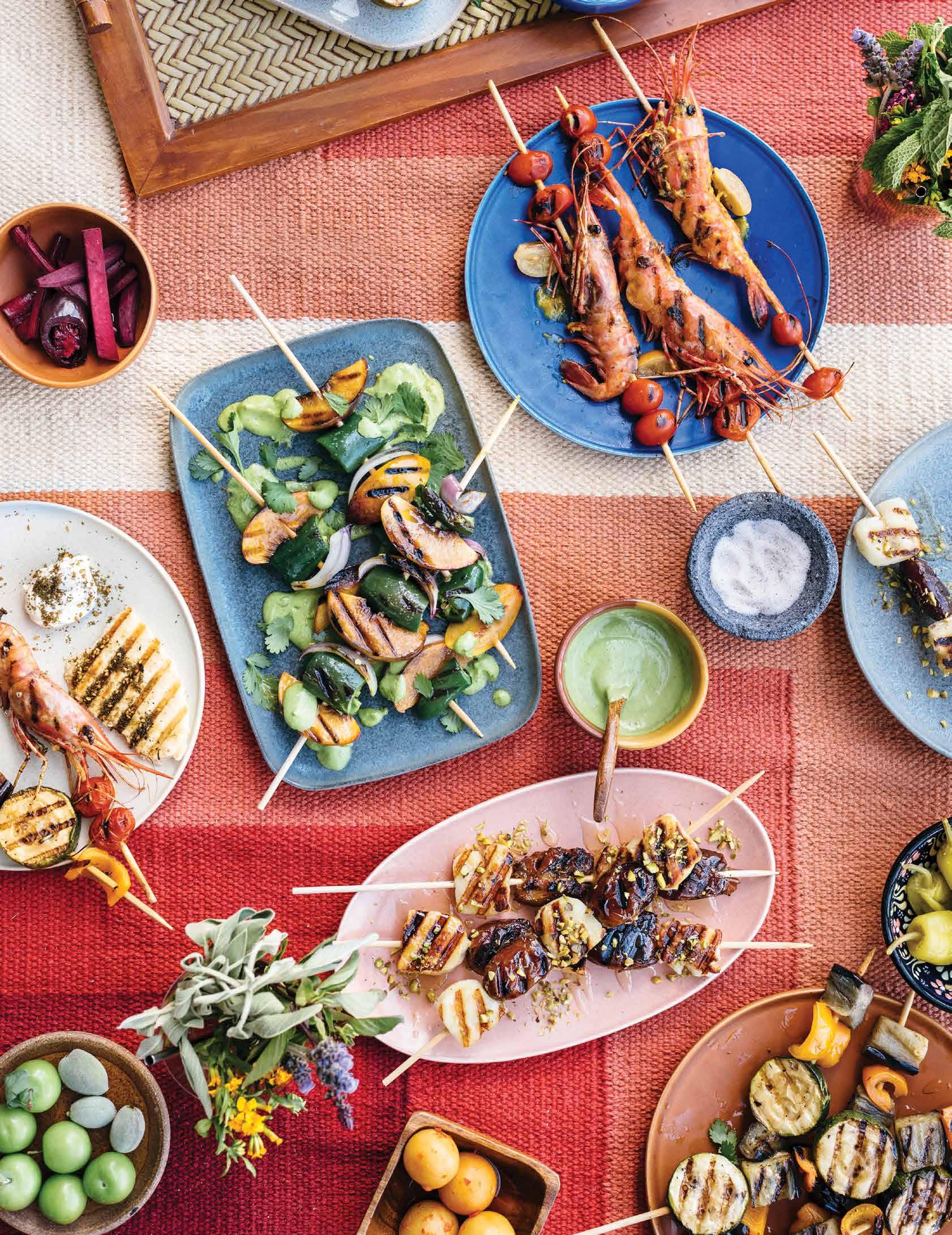
































































What epitomizes summer more than grilling? This one cooking method offers many quick and simple options that taste and look great. Try your hand at grilling something you just bought at the farmers’ or fishermen’s market. Local means the freshest, purest fuel for your bod and dollars in the pockets of the hardworking folks that grow, procure, and pre pare the best food in our region.
As we are literally feeling the heat now, I’d like to make a call to action, inviting you to support local nonprofits and programs that address climate change, like San Diego 350, Surfrider, and the San Diego Food System Alliance. Edible San Diego has you covered on the backstory of our wellbeing: Pull out your phone and search the term sustainability on our website or Google regenerative agri culture because your choice to eat local has a big impact.
We hope you will take us with you this summer—whether that means tucking this issue in your beach bag or hanging out with us online. Here’s a little nugget to keep in mind as you enjoy our content. In many ways, Edible San Diego resembles the small businesses we celebrate, consciously choosing to create a quality product even though it’s more expensive to do things locally, by hand, with the best inputs and talented people who are in it for the greater good. We’re a media company in a new era where ev eryone can create content or aspire to be an influencer. Old rules and roles of communications evolve fast as people who produce, prepare, sell, research, write about, and eat food (yes, that means all of us) seek viability and meaning in a globalized world.

In the heat of this moment, Edible San Diego aims to be your good friend. A calm gathering place. Your go-to resource to make your day a little more tasty and fun. Still, I pay living, breathing San Diego County residents to create the stories we share with you. We’re innovative and efficient, but—being candid here— our ability to deliver the goods depends on you. Yes, you. Please subscribe to this magazine, and tell our advertisers that Edible San Diego sent you.
Indeed, whether it’s a sunset barbeque, partnering to protect nature, or supporting businesses that enrich our lives, it takes a village. We wish you and your tribe all the pleasures of summer.
Katie Stokes Publisher, Edible San Diego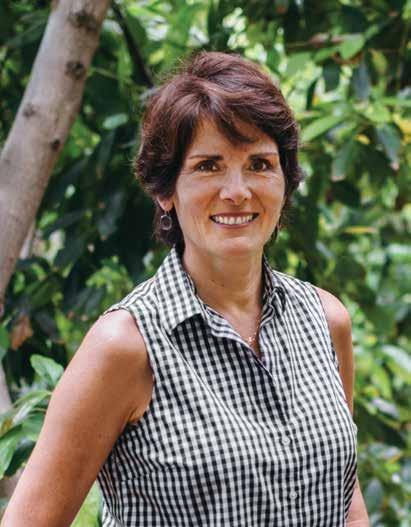





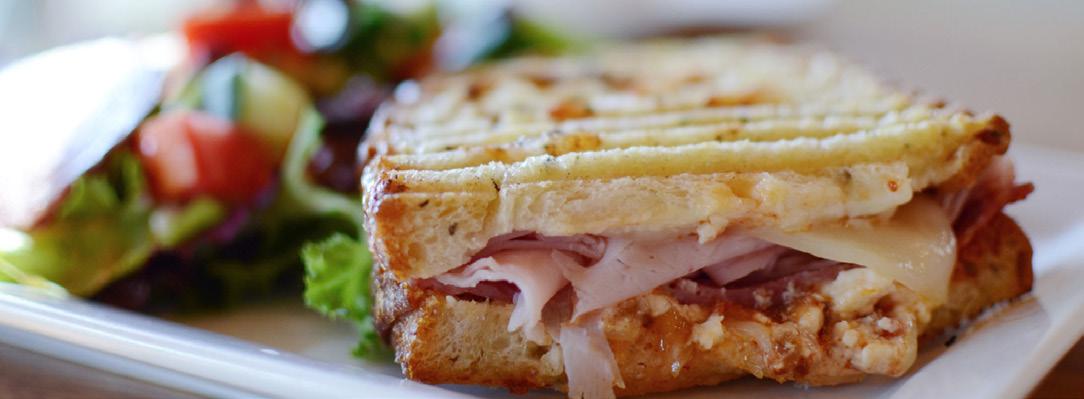
Environmentally minded beverage consumers are more likely to purr than growl at the thought of recyclable and reus able containers. But the growler got its name from the sloshing sound the liquid makes in transport, which, as it turns out, is a pretty close mimic.
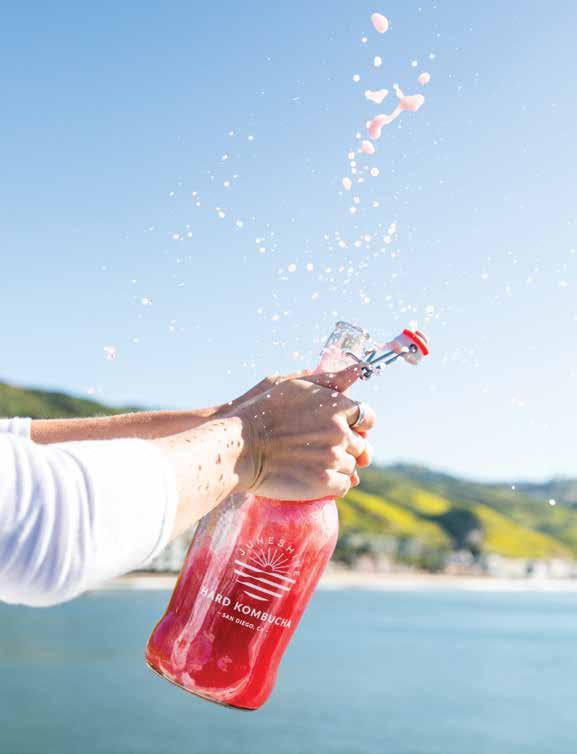
In the craft beer industry, 64-ounce growl ers are increasingly being phased out in favor of 32-ounce aluminum crowlers. However, other segments in the beverage industry rely heavily on growlers. There are pros and cons to both: Growlers can be refilled, while crowlers are single-use but have improved light resistance and are easier to finish before going flat. Due to their size and bulk, growl ers are also more expensive upfront and can’t be used in places where glass is prohibited.
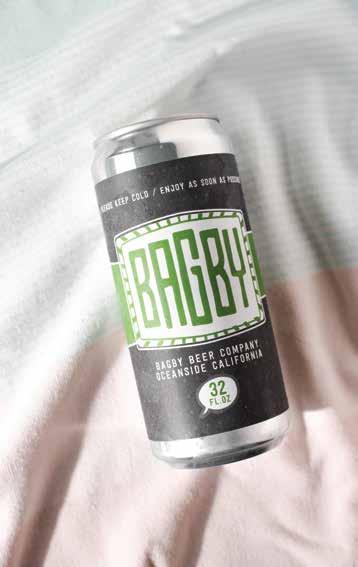
When you seek an off-premise drinking option, there are plenty of places in San Diego that offer one or both. For crowlers, try Culture Brewing Solana Beach, Kairoa Brewing Company in University Heights, Bagby Beer Company in Oceanside, or Ser pentine Cider in Miramar. Growlers are still offered by most breweries, and are favored by places like JuneShine in North Park (hard kombucha) and farmers’ market vendors like GreenFix Organic Smoothie.
Cali burritos, acai bowls, and fish tacos are dishes with one thing in common: They are specialties of San Diego. Here are three emblematic dishes best prepared over a flame with flavors nearly impossible to match elsewhere.
Anyone who has ever grilled in a San Diego backyard surely knows of Cardiff Seaside Market’s burgundy pepper tri-tip, affection ately nicknamed “Cardiff Crack” due to its cult following and addictiveness. The USDA Choice tri-tip is carved from the bottom sirloin, trimmed, marinated, and infused with a burgundy pepper marinade. Their tri-tip is also available in spicy chipotle.
» seasidemarket.com
Kennedy’s Meat Company’s carne asada has long been a hallmark of the brand, which has been around since 1972. One of the best ways
Above: Pop the top on a growler from JuneShine or a crowler from Bagby.
This image: Cauliflower leaf and stem makes for a delicious plant-based chop.
to sample it is in a burrito, available at their Escondido storefront. Their burrito comes stuffed with rice, beans, pico de gallo, cheese, sour cream, and a heaping pile of USDA Choice flap meat carne asada.
» kennedysmeatcompany.com
Davin Waite earned local fame for his inven tive sushi creations, but he’s also becoming well-known for his plant-based and no-waste initiatives, which he works on with his wife Jessica. Waite’s Cauliflower Chop is served in an avocado seed mole and its rich flavor is worth taking a knife to.
» theplotrestaurant.com
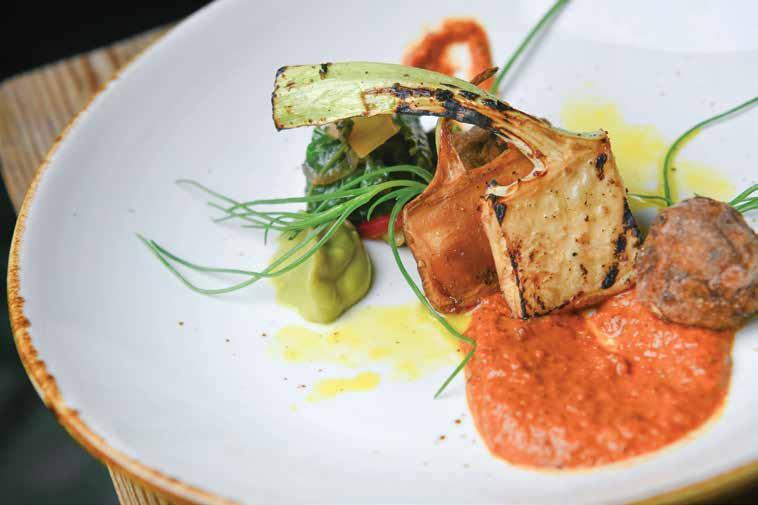
Native wildflowers boast glorious blankets of color, but they’re more than a feast for the eyes—they greatly enhance the world around us. Wildflower habitats support biodiversity and provide food sources, ground cover, and homes for insects, birds, reptiles, and small mammals.
In full bloom, wildflowers contribute an array of garden benefits. Insects that flourish in wildflower habitats pollinate the foods we eat and grow in veggie patches. Flowers planted at the ends of raised beds or garden rows attract crucial pollinators, ensuring greater summer harvests. Including these varieties also improves soil biology and prevents erosion.
Keep in mind, it’s important to only plant regional native species like California poppies, sunflowers, sage, buckwheat, and purple owl clover in San Diego gardens. The introduction of non-natives can quickly become invasive and damage delicate ecosystems. Planting varieties that haven’t evolved locally can compete with native species for water, disrupt insect and bird migrations, and interfere with the general symbiosis of our environments. Check with your favorite nursery or the Master Gardener Association of San Diego County to determine the best varieties for your space.
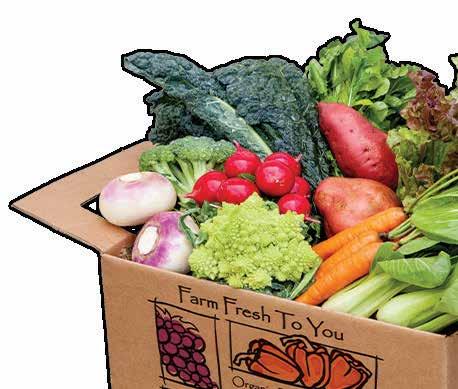
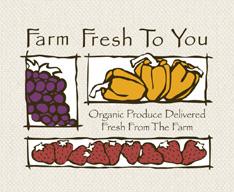
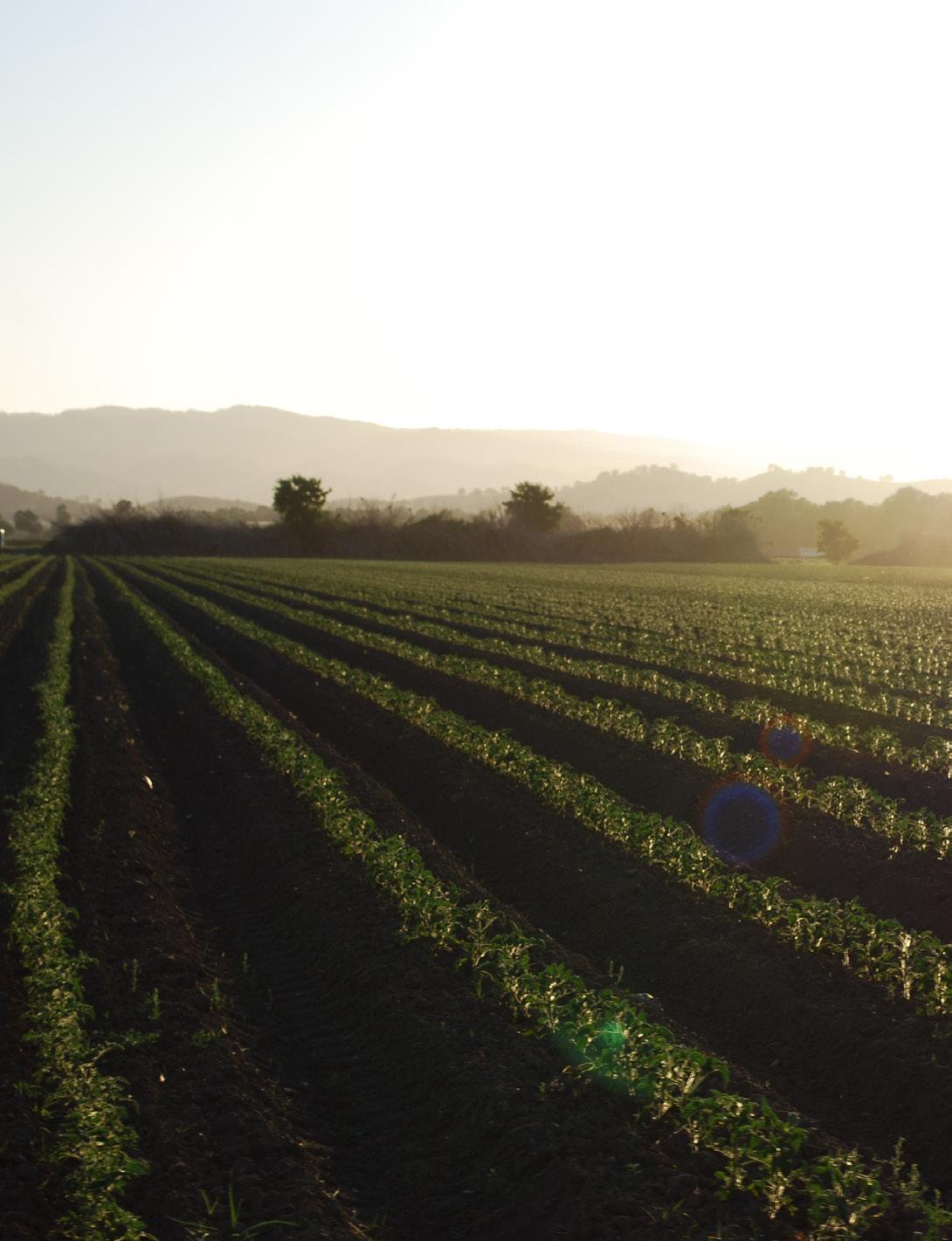
Bring home a slice of the spectacular blooms that paint our hillsides each spring and know that you’ll be contributing to an environment teeming with life. Wildlife species large and small will thank you!
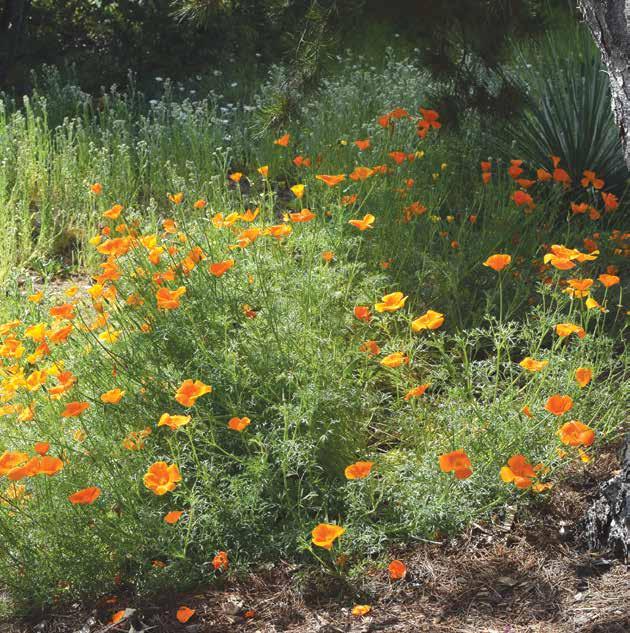
The Hillcrest Farmers’ Market captures the diversity of San Diego on two blocks every Sunday. Grazing through the stalls, one can find the fruits of sustainable agriculture, the means to grow their own, and the comforts of veganized American classics.
Human force tills the earth around aromatic fruits, vegetables, and herbs at Fallbrook’s Good Taste Farm. Employing hand-farming methods, Sarah and Kris tend to diverse and beneficial crops. Their farm’s small footprint and practices boast water conservation efforts and lower levels of soil erosion, resulting in signature plumes of
basil, plump oranges, and fans of rainbow chard that can only be found at the Hillcrest market.
» goodtastefarm.com
The pink banner at the tent exclaims “100% Vegan Comfort Food.” A fast favorite of the pop-up scene, Harmless Eats fries up a plant-based take on chicken(less) tenders served with scratchmade dipping sauces including chipotle cream and buffalo. Here, the classic po'boy is stuffed with fried-to-order oyster mushrooms dressed in a tart pickle-spiked remoulade with a nice hint of spice.
» instagram.com/ harmlesseats






Specializing in heirloom edibles and ornamental seedlings, Whole Earth Acres Nursery wants to kick-start your home garden. Linger over fragrant mints and fluttering violets while gathering growing tips from the Robinsons. Most plants are $3, with larger or rarer varieties cropping up at a few extra dollars.
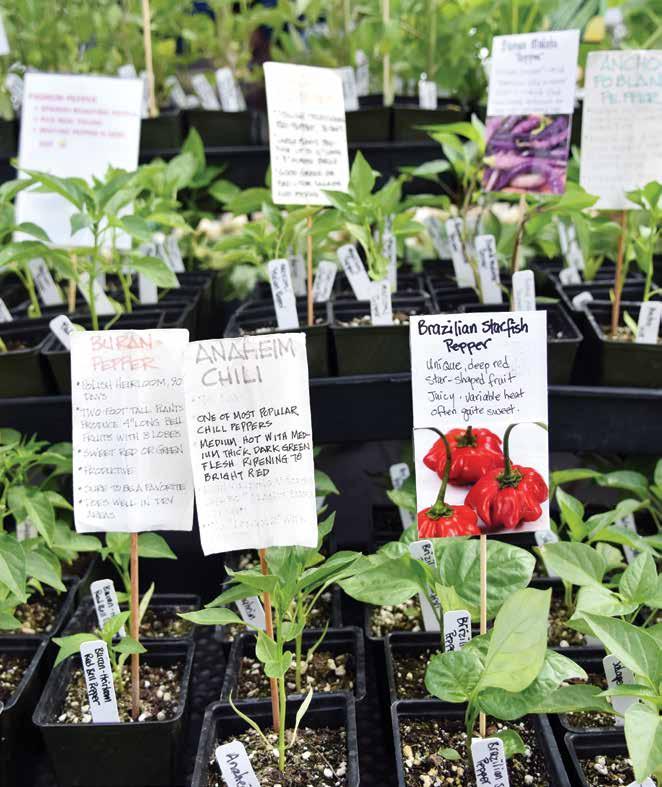
If your summer goals include bee-ing a great reader, we’ve got two books for all ages starring bees—and written by San Diegans—that can’t wait to join you at the beach. Both are available for purchase on amazon.com.
•
BY RYEN TOFTIllustrated by Vivian Yiwing, Bee a Dreamer (Social Motion Publishing, 2018) tells a vivid and fantastical story about Bella the bee and her best friend Sam the giraffe. Together, they share dreams, face fears, and discover bravery on a journey to Africa. Proceeds from the sale of each book benefit the Planet Bee Foundation, promoting environmental stewardship to youth with bee-centric educational outreach.
•
BY HILARY KEARNEYLocal urban beekeeper Hilary Kearney of Girl Next Door Honey takes readers on a journey in QueenSpotting: Meet the Remarkable Queen Bee and Discover the Drama at the Heart of the Hive (Storey Publishing, 2019). Explore fascinating details about the queen bee’s life cycle and the inner workings of her colony through first-person encounters, wild bee colony rescues, illustrations, and stunning imagery documented through Kearney’s work. Reminiscent of I Spy and Where’s Waldo?, fans will be delighted and visually consumed by the book’s queenspotting challenges with 48 gorgeous and glossy fold-out pages featuring the queen hidden among her swarm. It certainly left us musing about honeycomb and seeing everything in black and yellow.

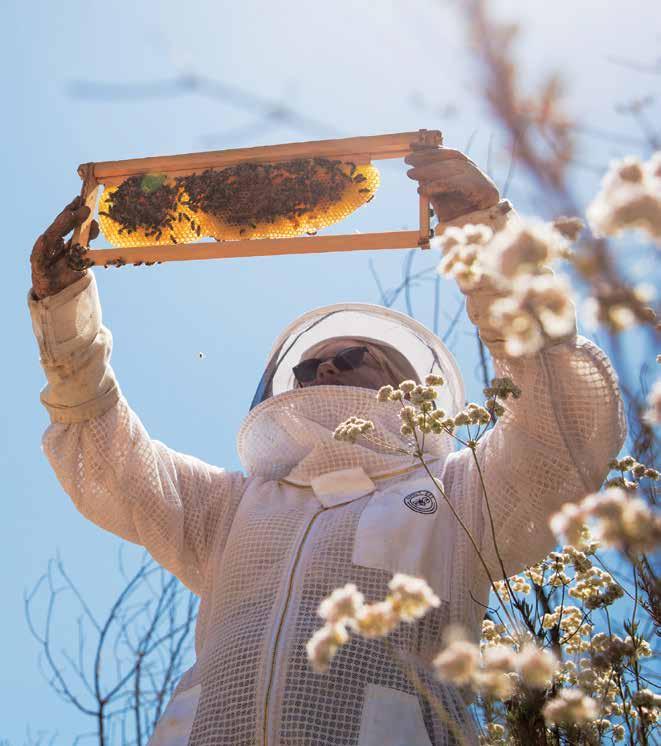
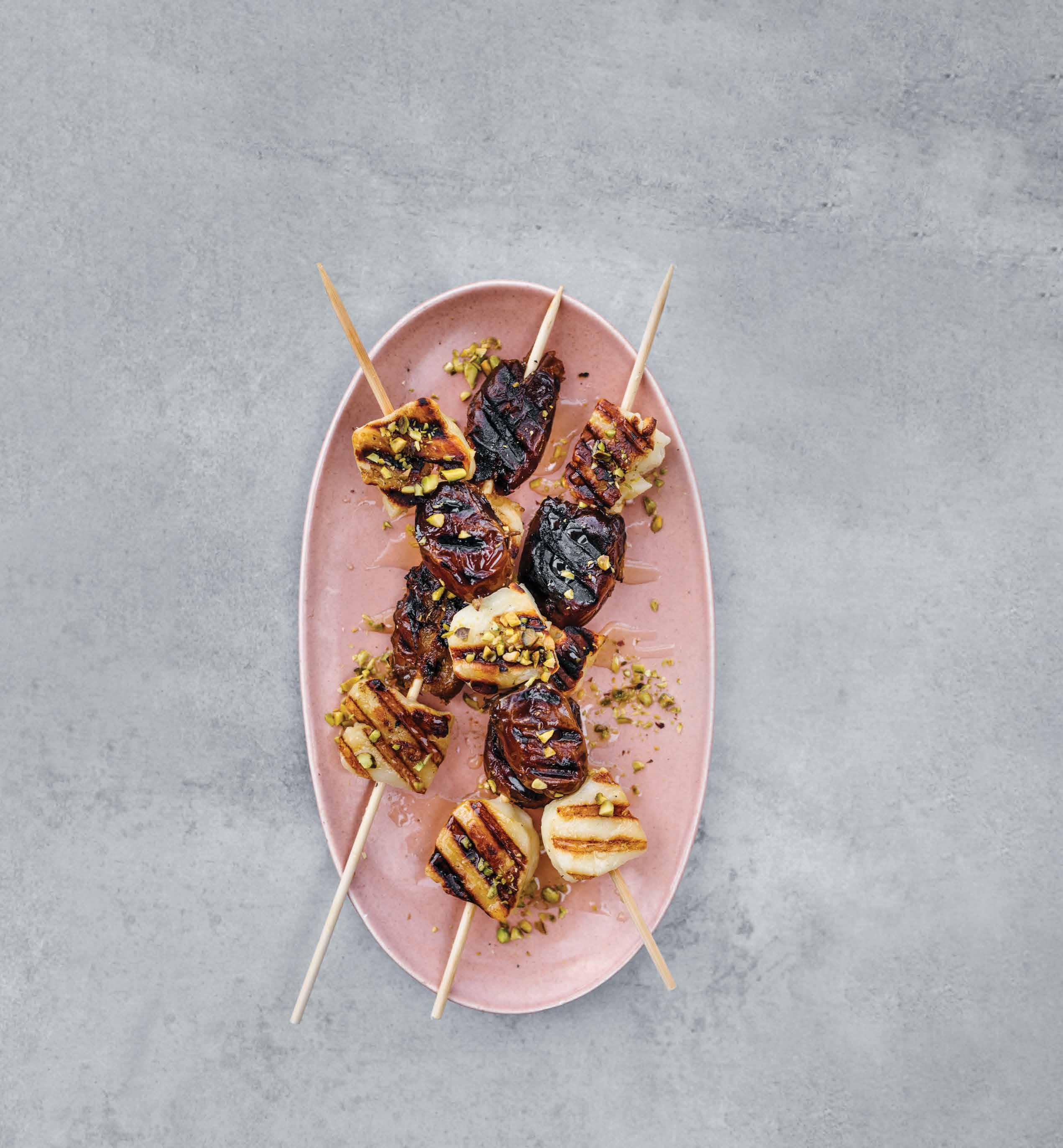 BY FELICIA CAMPBELL
BY FELICIA CAMPBELL
Grilled cheese, anyone? See why halloumi and dates need nothing more than honey and pistachios on page 12.
humankind’s first culinary technique and remains our most universal. It’s primal and naturally celebratory, whether watching the flames of an asado burn on the hillsides of Argentina or sitting on a beach in the Arabian Gulf eating cardamom and black pepper-marinated mishkak with tangy tamarind hot sauce.
The easiest way to enjoy barbequed foods is to skewer your meats or veg etables before grilling, thus eliminating the need for plates or cutlery. This idea originated in the Middle East, where smaller bits of meat were skewered and cooked for casual meals when a wholeanimal feast wasn’t in the cards. Cen turies later, in medieval Turkey, soldiers would use their şiş (swords) to skewer and cook dinner in the field, giving rise to the common moniker shish kebab.
Good ideas tend to travel, and as Muslim pilgrims and traders carried their cookery techniques with them around the world, the kebab took on regional variations that are still popu lar today. ln Indonesia, thin ribbons of chicken satay are served with savory peanut sauce, while in the Punjab region of northern India and Pakistan, chicken tikka (pieces) are marinated in yogurt and chile before being grilled in a clay tandoor oven.
The Muslim Uighur in Beijing are
MAKES 4 SKEWERS
Peak-season peaches and spicy jalapeños meet with avocado crema, tangy lime juice, and cooling Greek yogurt.
2 peaches or nectarines, pitted and cut into 1” wedges
1 red onion, cut into ½” wedges
2 jalapeños, cut in half or thirds, seeds removed
2 tablespoons extra-virgin olive oil
1 teaspoon kosher salt
1 medium avocado, pitted and peeled
½ cup fresh cilantro, plus more to garnish
1 clove garlic
¼ cup Greek yogurt
famous for their cumin-heavy lamb kebabs, while in Japan, yakitori might be the ultimate drinking food. Made with every part of the chicken, from the feet to the skin, they’re the perfect ac companiment to cold beer and sake.
On street corners in West Africa, you’ll find grills filled with suya, a spicy meat satay encrusted with ground peanuts and hot chile, while in Ira nian streets , foot-long flat skewers of koobideh kebab are hand-formed from a succulent mince of freshly grated onion and lamb.
Steckerlfisch, whole grilled fish on sticks indicates it’s Oktoberfest in Munich, and in Portugal, espetadas are made with everything from squid to pork.
In America, we like to skewer veg etables and meat together on our shish kebabs (never mind that in Turkey the meat and veg are skewered separately to allow for the different cooking times). That’s the great thing about grilling—no matter what combination of flavors or ingredients, this ancient strategy is for giving, endlessly customizable, and just plain fun from assembly to eating.
The Edible SD recipe team developed a lineup of seasonally inspired, stickgrilled recipes to enjoy in backyards and on beaches from Fallbrook to Imperial Beach, and we encourage you to get creative and make them your own.
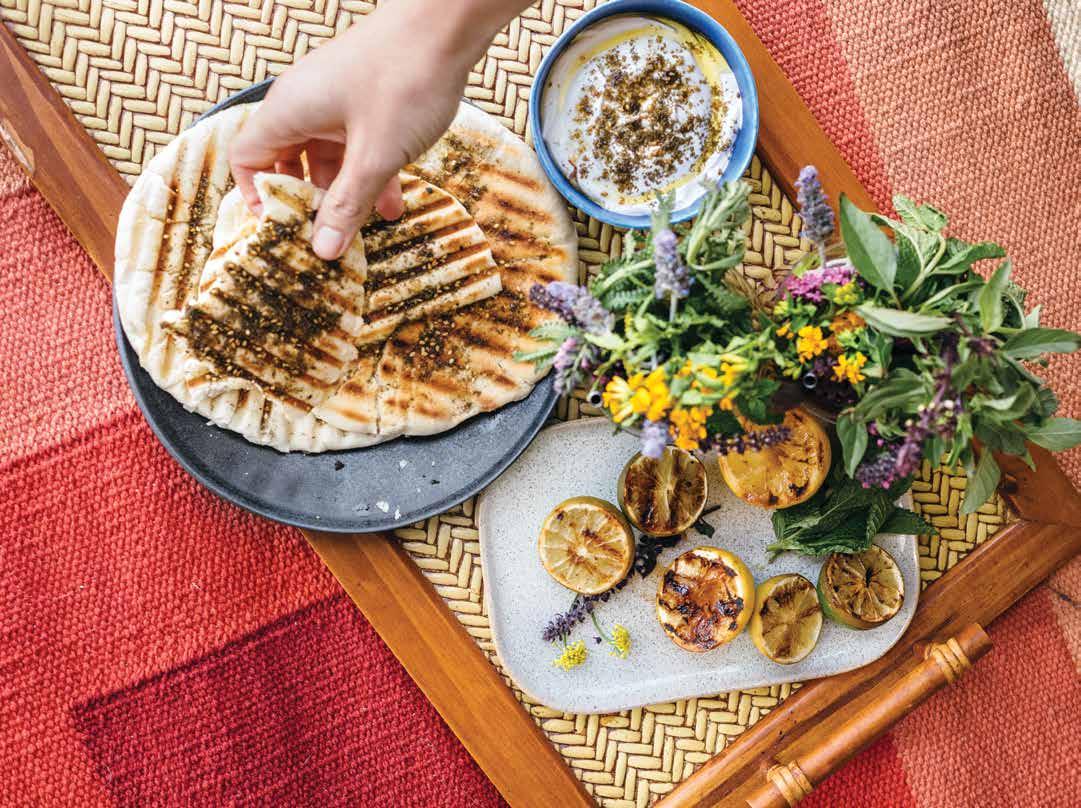
½ teaspoon kosher salt
Juice of one lime
4 skewers*
Heat grill to high heat.
Make the skewers: In a medium bowl, combine ingredients and toss to coat. Prepare skewers by alternating pieces of peaches, jalapeños, and onions.
Place skewers on the grill, flip after 4 minutes, and grill until onions and jala peños are tender and charred, about 4 minutes more.
Make the crema: Place all ingredients in the bowl of a food processor fitted with a blade attachment and process until smooth, stop ping and scraping down the sides of the bowl with a rubber spatula as needed. Add water slowly, up to about a ½ cup, until the desired consistency is reached.
To serve, drizzle crema on a platter and top with grilled skewers and fresh cilantro. Serve with extra crema on the side.
MAKES 8 SKEWERS
Find live spot prawns in season February through September at Catalina Offshore Products or the Tuna Harbor Dockside Mar ket and make them even sweeter by bast ing them with saffron, garlic, and butter.
RECIPE CONTINUES
¹/³ cup salted butter
Pinch saffron (about 20 threads)
2 cloves garlic, minced
1 pint cherry tomatoes
8 shell-on spot prawns
2 tablespoons extra-virgin olive oil
1 lemon, fresh or preserved, cut into wedges for serving
8 skewers*
Heat grill to high heat.
In a heat-proof bowl in the microwave or in a small saucepan on the stove, heat the but ter until melted but not boiling. Add saffron threads and garlic to the butter and let steep for 10 minutes to fully extract the flavors.
Prepare skewers starting with 2 or 3 cherry
tomatoes, followed by one prawn (insert tip at the head and push through the tail) and a few more cherry tomatoes. Brush lightly with olive oil and place on grill. Grill for 3 minutes until lightly charred, flip, and baste with saffron-garlic butter. Grill an additional 3 minutes until just done and baste with additional butter. Remove and transfer to a serving platter, drizzle with additional saffron-garlic butter, and garnish with lemon wedges.
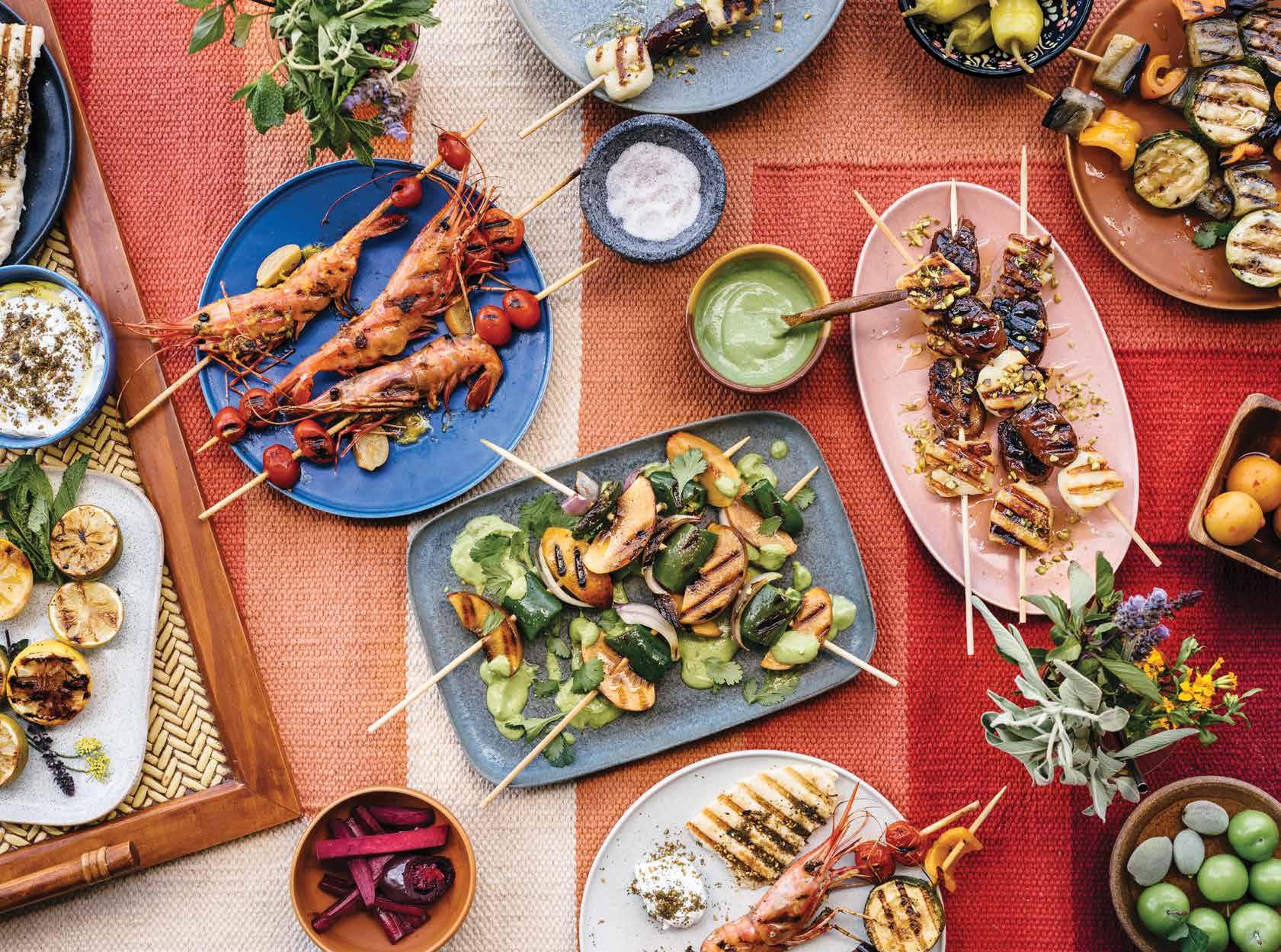
Taking grilled cheese to the next level.
2 8-ounce blocks halloumi cheese, room temperature, each cut into 8 (16 cubes total)
16 dates, pitted
2 tablespoons extra-virgin olive oil
1 tablespoon honey ¼ cup pistachios, finely chopped
Heat grill to medium-high heat.
Prepare skewers by alternating pieces of halloumi and dates, 2 pieces of each per skewer. Brush lightly with olive oil and place a flat side on the grill. Flip skew ers after 3 minutes and grill the other side for an additional 3 minutes or until evenly charred and halloumi has a browned crust. Remove from heat and place on a serv ing platter. Drizzle with honey and sprinkle with pistachios.
*Soak wood skewers in water overnight.
A marinade is a combination of four basic components: acid, oil, salt, and seasoning. Keep in mind you’ll need half a cup of marinade per pound of meat or vegetables.
Start with an ACID , such as citrus or vinegar, or tenderizing components like tomatoes or yogurt to break down tough fibers and brighten flavors. A quarter to half of the marinade should be acid.
OIL helps keep your protein from sticking to the grill and allows the seasonings to soak in. Choose an oil, or mix of oils, that complements the flavors in the other components. High-heat-tolerant oils like avocado and peanut or neutral options
like grapeseed and canola can be substituted based on preference. The marinade should be half oil.
SALT enhances flavors, whether in the form of sea salt, fish sauce, or soy sauce.


SEASONINGS like hot chile, garlic, spices, or fresh herbs are the building blocks of flavor in your customized marinades.
Whisk well, taste, and adjust seasonings until flavors are balanced.
With this basic formula, you’ll have endless marinades to keep your grill occupied this summer. We put together five marinades to give you a jumping-off point.
We publish new seasonal recipes every week. Get inspired at ediblesandiego.com.

VEGAN SUMMER COMFORTS
By Alexa Soto
Berry and Peach Crumble
Classic Potato Salad Roasted Corn and Orzo Pasta Salad
SEASONALLY INSPIRED
By Olivia Hayo Santorini-Style Flank Steak Tacos
Grilled Radicchio with Nectarines
Florentine Grilled Vegetables with Hazelnuts and Vinaigrette
Grilled Harissa Chicken Flatbreads PLUS Grilled Watermelon with Feta and Mint
By Felicia Campbell Surfer-Style Grilled Fish and Vegetable Packets By Jim Kempton
Hot Chile-Garlic Paste, Sesame Seeds, Black Pepper, Fresh Garlic, Ginger
Fresh Garlic, Parsley, Cilantro
Garam Masala, Ginger, Garlic, Red Pepper Flakes, Turmeric
Oregano, Basil, Garlic, or Italian Seasoning Blend
Mint, Za’atar, Sesame Seeds, Red Pepper Flakes, Garlic SEASONINGS
Beef, Chicken, Shrimp, Tofu, Mushrooms
Beef, Pork, Lamb, Halloumi, Firm Fish, Lobster Chicken, Tofu, Paneer, Cauliflower
*Marinate seafood, soft vegetables, and chicken for at least 30 minutes. Root vegetables, beef, lamb, and pork benefit from an overnight soak, but should hang out for a minimum of an hour.
Flank Steak, Pork Loin, Artichokes, Bell Peppers, Zucchini, Eggplant
Lamb, Salmon, Chicken, Cabbage or Cauliflower Steaks USES


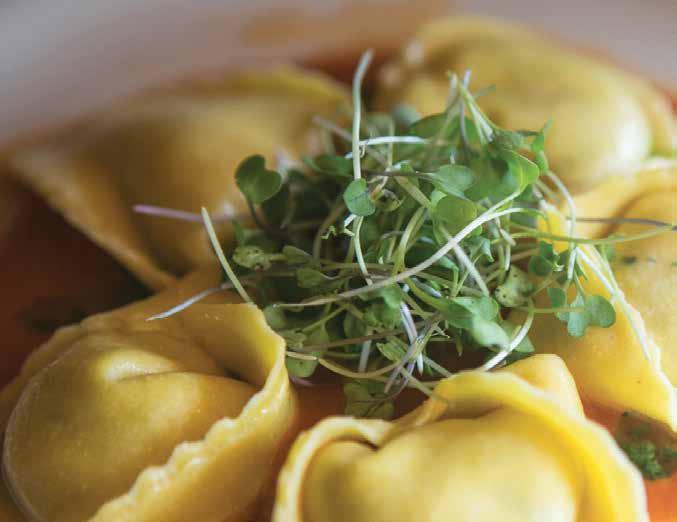
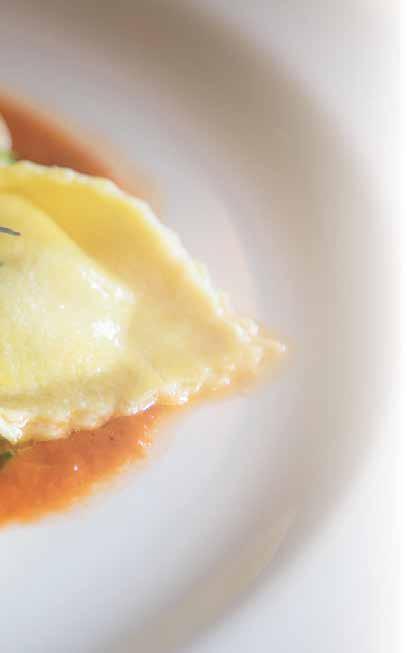

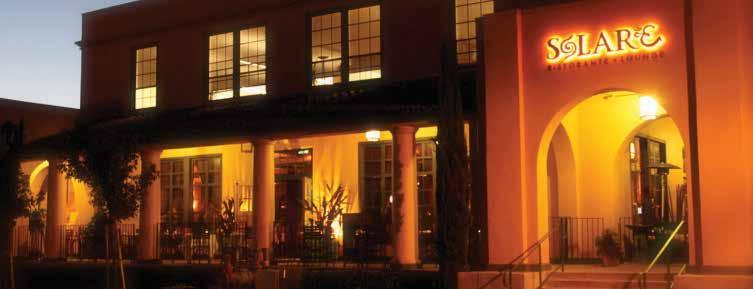

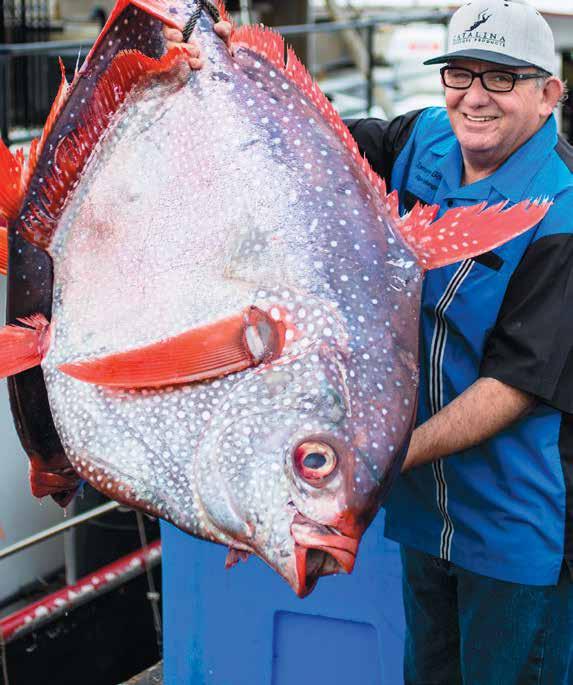
California history have occurred in the last decade, with three of them taking place in 2018. The Mendocino Fire of 2018, the biggest ever recorded in California, raged for nearly three months and consumed 459,123 acres—10 times the area of Washington DC. Severity and the increasing size of individual fires aside, there is a general trend for fires to burn more and more Califor nia acres every year.
Scientists have made a connection between our increasing risk of fires and human-induced climate change. Higher tempera tures translate into shorter rainy seasons, drier vegetation, and changes to the Santa Ana winds that fan the flames. When we see news coverage of wildfires and the damage they bring, television cameras often focus on the ashes and smoke from the remains
of houses and neighborhoods, but how do wildfires affect our California farms? And what is being done for the future?
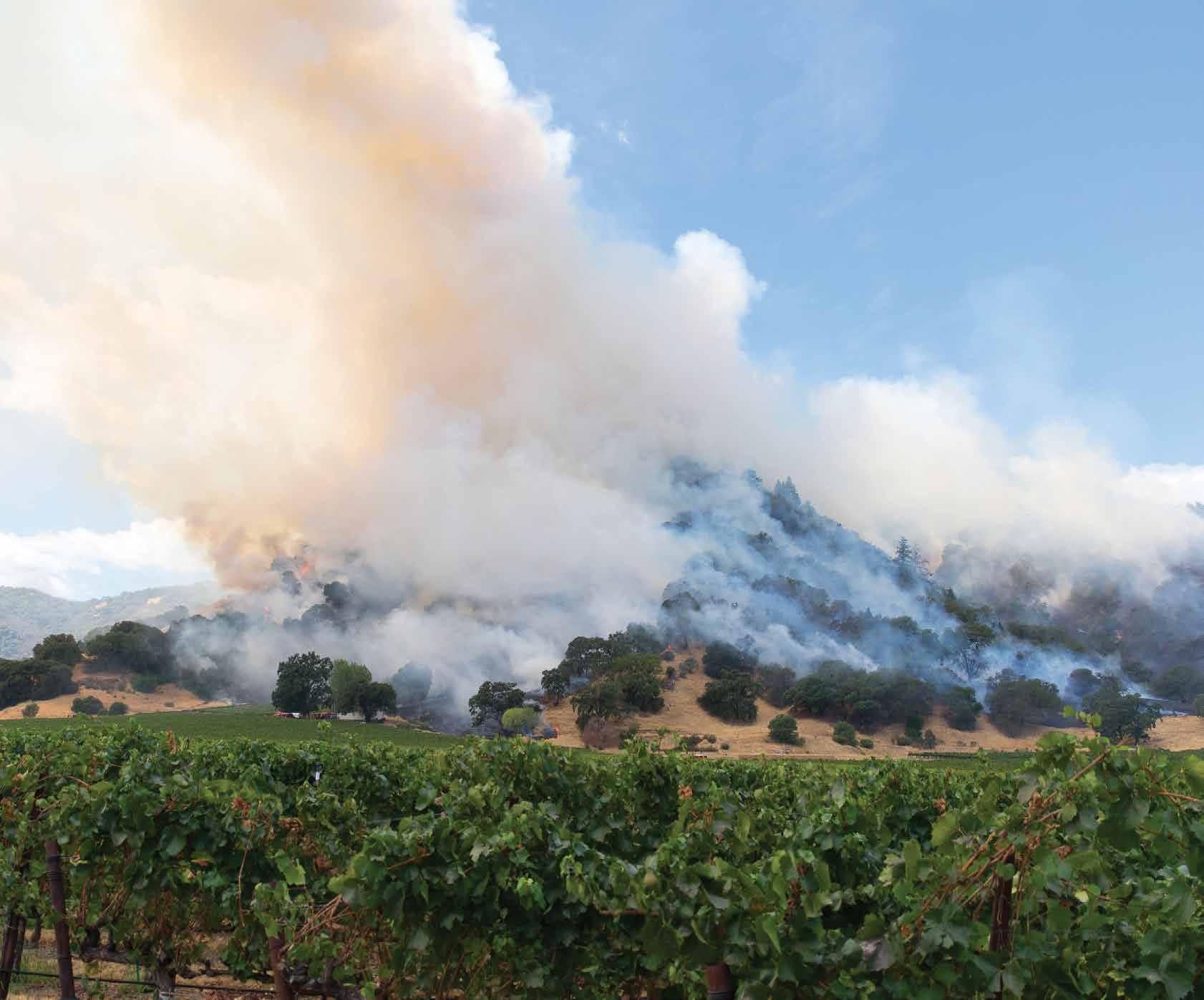
Most San Diego County farms are in our backcountry, or at the interface between the backcountry and urban areas such as the bucolic fields we see around Fallbrook or Santa Ysabel. Eric Larson, executive director of the San Diego Farm Bureau, says that during a wildfire, resources are concentrated on saving lives, buildings, and homes. “This means that farmers must do what they can to have protections in place before a fire occurs. These are the typical recommendations for anyone: keeping fuel away from structures, perimeter clearing, weed control, and having emergency plans in place,” he says.
In a recent news release from the UC Division of Agriculture
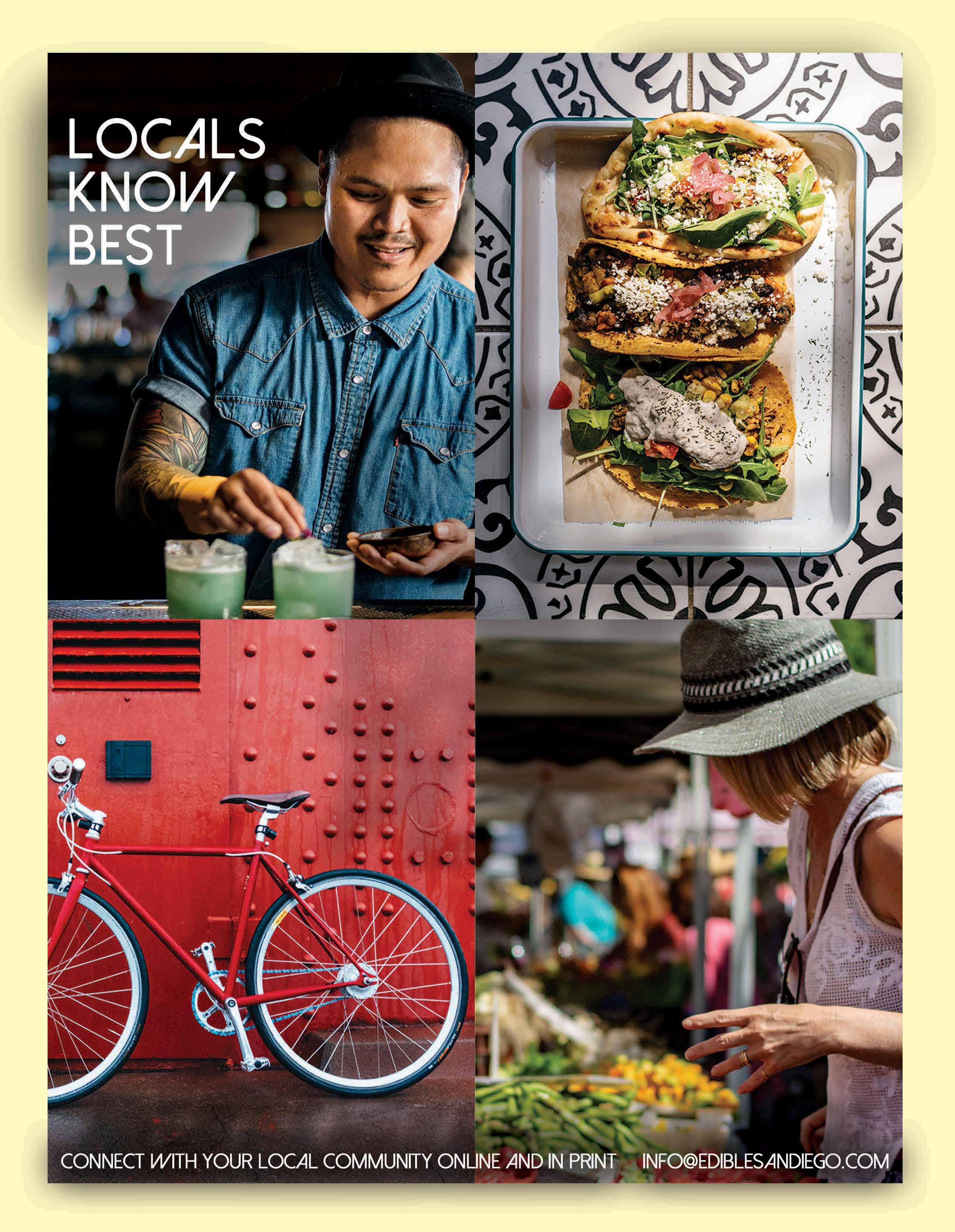


and Natural Resources, Rebecca Ozeran, a livestock and natural resources advisor for Fresno and Madera counties, said that as of today there is no good estimate of the cost of wildfire to livestock producers in California. In an effort to find answers, University of California researchers began an online survey of California livestock producers late last year. In addition to gathering infor mation on wildfire and livestock, the researchers hope to map areas in which wildfire will have higher economic ramifications and find preventive measures that ranchers can undertake to mitigate losses due to wildfire.
With an eye toward a future that presents more risk from wildfire, the California Sustainable Winegrowing Alliance, a col laboration between California’s wine growers and the Wine In stitute, has researched the issue and published a fire preparedness guide and online video for grape growers, according to Gladys Horiuchi, director of media relations for the Wine Institute.
raging and approaching the Morrison Ranch Estates, a 1,226home real estate development. The flames were halted by a firebreak that had been cleared by goats (although flying embers did ignite three homes, two of which were destroyed).
In 2017, the area around Fallbrook was burned in the Lilac Fire. Though flames went through many orchards, dam age was slight. UC Davis emeritus professor and agriculture expert Dr. Gary Bender said at the time that if a fire moves slowly, then the heat has time to affect the trunk of a tree, and it will need to be replaced; if the fire burns hot and fast, the leaves of the trees will have burned, but the tree itself will probably be fine. Bender said that farmers should continue to water their orchards after a fire and leave the affected trees alone for up to three months after a fire before deciding whether the tree needs replacing. If the trunk is undamaged, the tree will likely recover.
This year, due to almost Noahic rains, California is teeming with brush and grasses. With annual summer droughts, the brush and grass can be ready tinder for the next wildfire. As part of a solution to this threat, a growing number of goat herders and shepherds are offering the services of their voracious livestock for natural, non-mechanized brush clearance.
Sheep and goats are instinctively suited to foraging on can yon slopes. They also like to nibble in crags and between rocks, areas that are difficult, expensive, and sometimes impossible to access with commercial brush-clearing equipment. The sheep and goats come at a lower cost than a crew of humans operating brush-clearing equipment and they even eat poison oak.
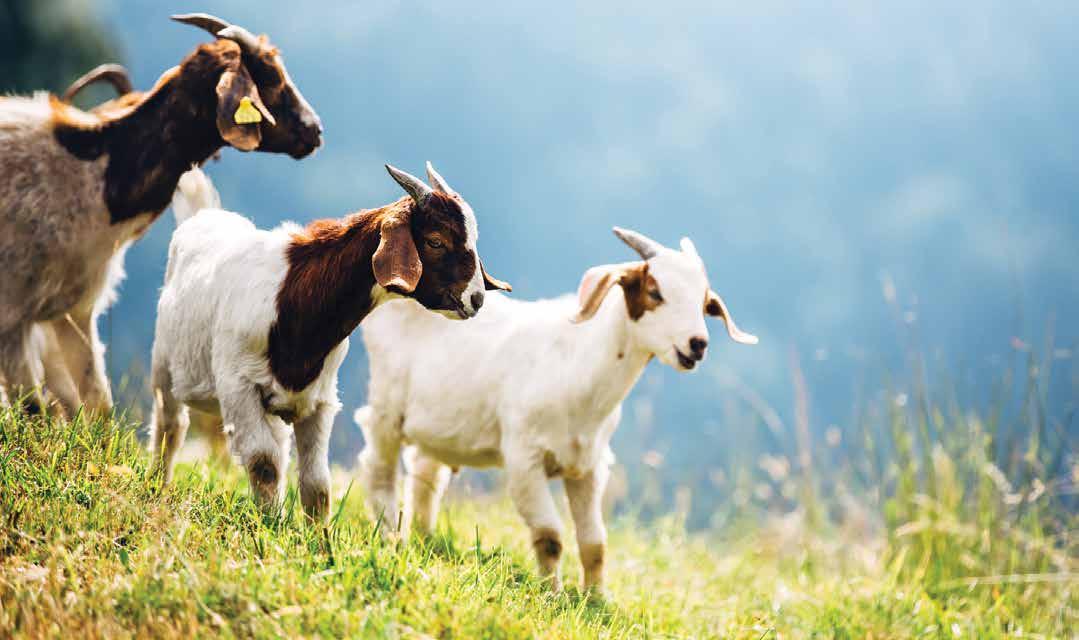
The benefits of brush-clearing livestock were noted during last year’s Woolsey Fire north of Los Angeles, where fires were
In California’s wine country, vineyards actually mitigate the effects of fires. While forests blazed and entire neighborhoods were turned to ash during the Wine Country Fires of 2017, many vineyards remained untouched by the flames. Horiuchi of the Wine Institute says, “In the past, California vineyards have served as firebreaks during wildfires and saved several wineries and other structures from damage. Grapevines are irrigated and resilient and not easily burned. If a vine is singed and does not actually burn, it will recover fully.”
As California faces greater threats from wildfire, our farms face new and increasing challenges. State universities and agri cultural associations are investigating and instituting preventa tive measures and solutions to protect our farms and crops. And our orchards, vineyards, and pastures may turn out to be some of our greatest aids in our struggle against wildfire.
The flames were halted by a firebreak that had been cleared by goats.





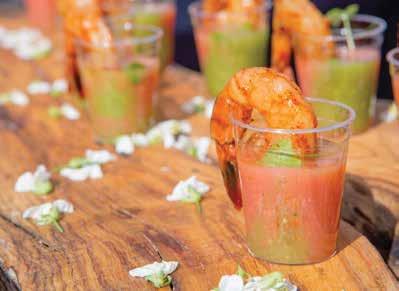


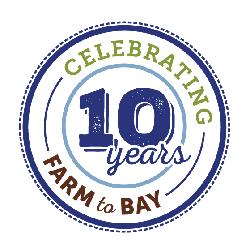
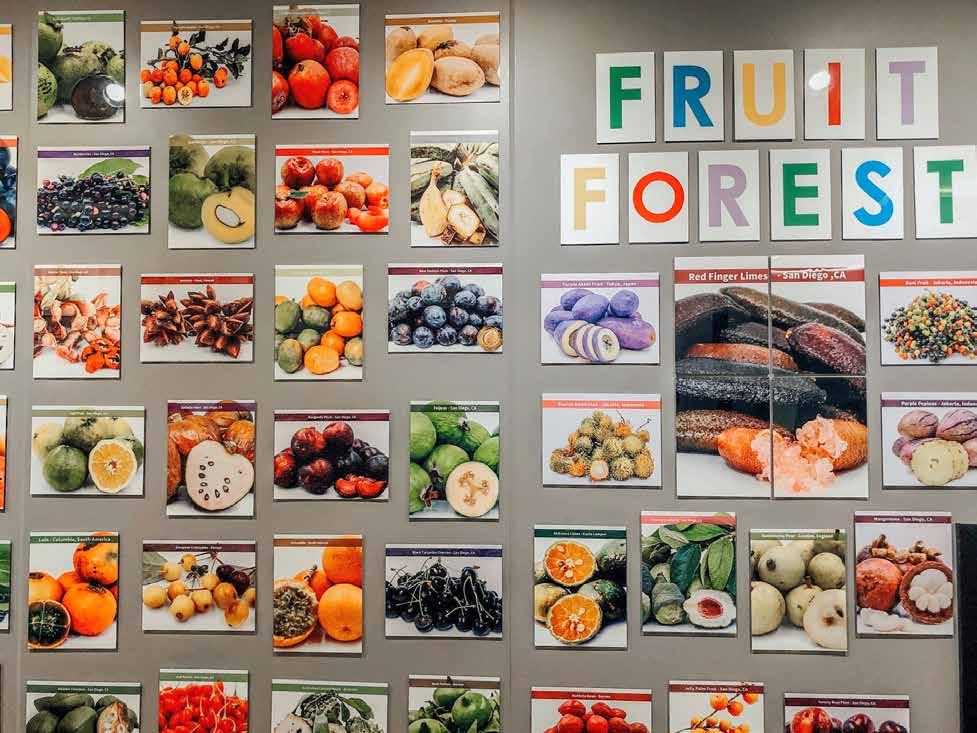
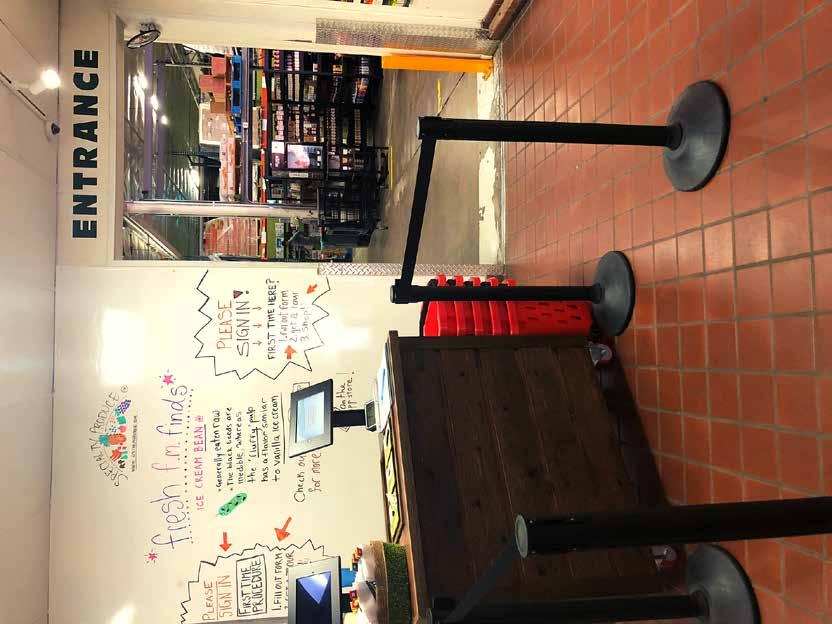
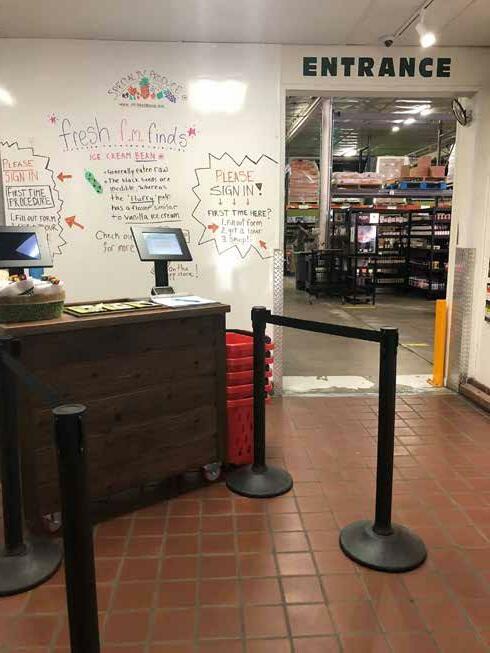
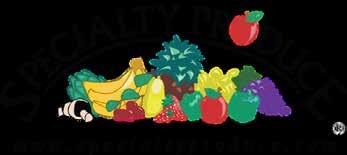

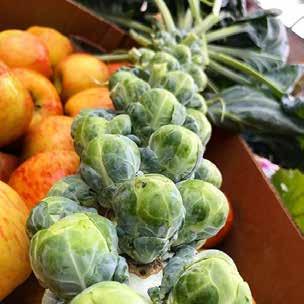
Ifyou were to ask me what the leading cause of death for firefighters was, I’d answer “fires,” naturally.
But it’s not.
In fact, a very high percentage of our nation’s firefighters are dying from cancer and other forms of preventable illness.
“Cancer continues to be the leading cause of death,” says the feature article on occupational cancer in the 2019 winter issue of Fire Fighter Quarterly, the trade maga zine of the International Association of Fire Fighters. This isn’t just by a small amount: The article states that 65% of firefighters
placed on the Fallen Firefighter Memorial Wall of Honor from 2002 to 2018 died of cancer, and in September 2018, 164 of the 249 names added to the wall were cancer deaths.
Much of this comes by way of occupational hazards. Car cinogens are vaporized in a fire, requiring firefighters to wear a breathing apparatus anywhere near a fire, but toxins are also absorbed through the skin. Then there’s daily exposure to ex haust, fumes, and other unknown dangers. With a recent slew of research linking the profession to higher rates of cancer and other preventable diseases like heart disease and diabetes, there’s an urgency to focus attention on developing best practices that reduce risks in firefighters’ work environments.
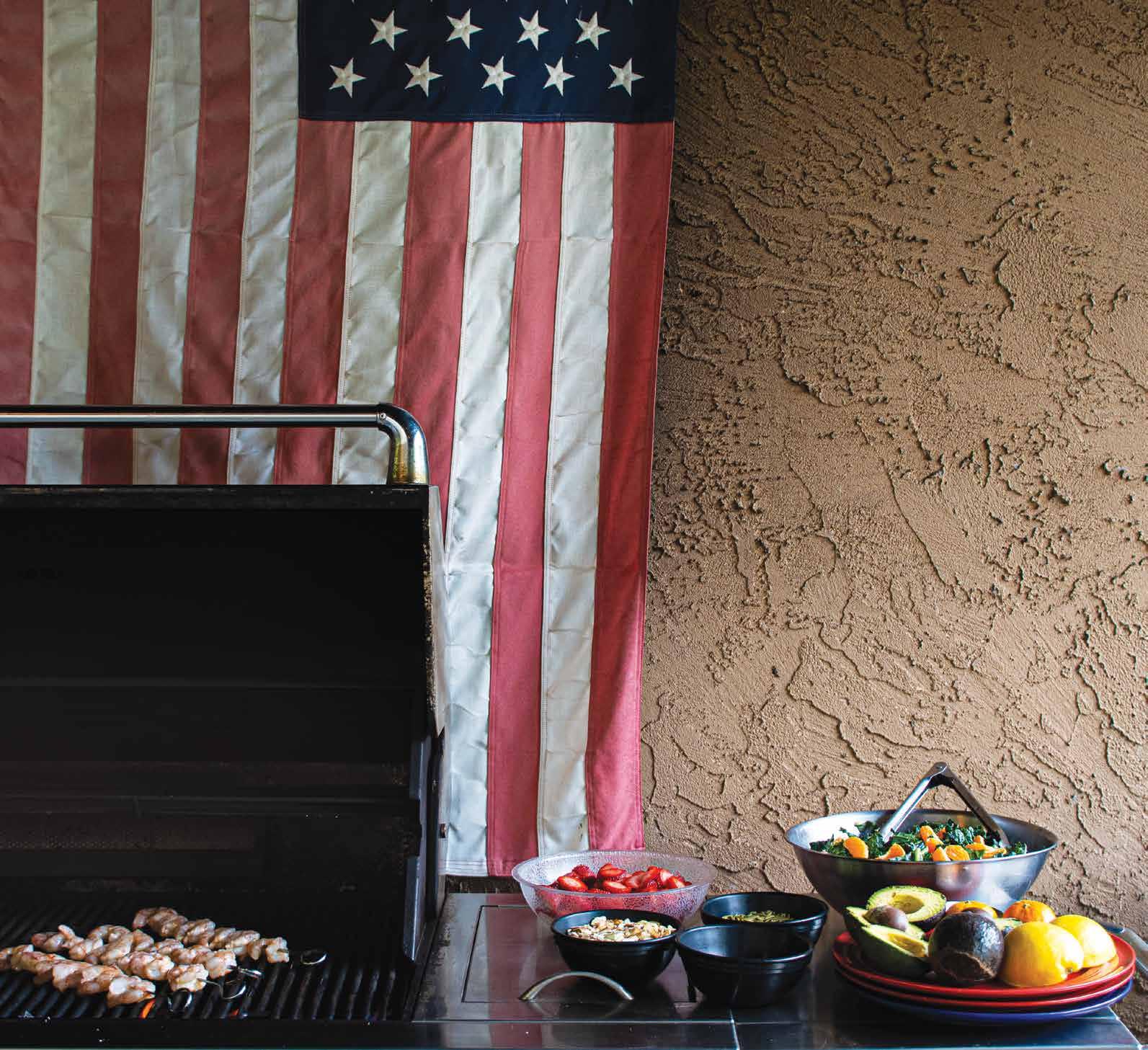
But, there’s another factor of health that hasn’t received the atten tion it deserves: It turns out, many firefighters have very poor eating habits due to time constraints at work as well as the cost and avail ability of grocery stores in close proximity to the fire station.
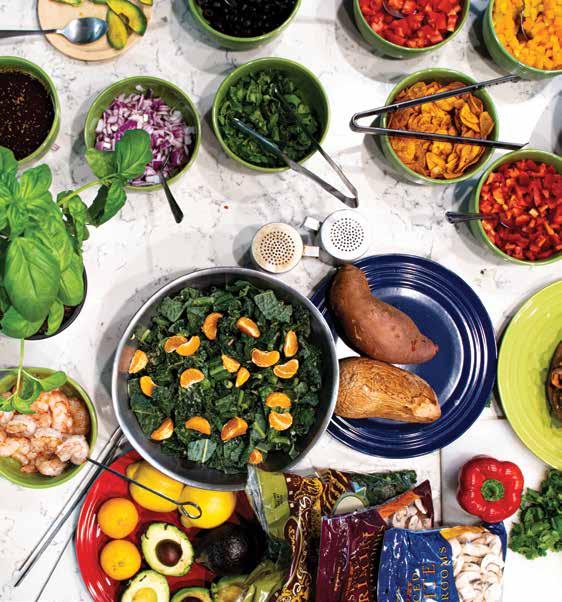
A small contingent of firefighters at San Diego Fire-Rescue Station 40 in Rancho Peñasquitos are working with others from around the world to change that. Fire Captain Justus Norgord and engineer Jeri Miuccio are trying to take diet awareness to the national level.
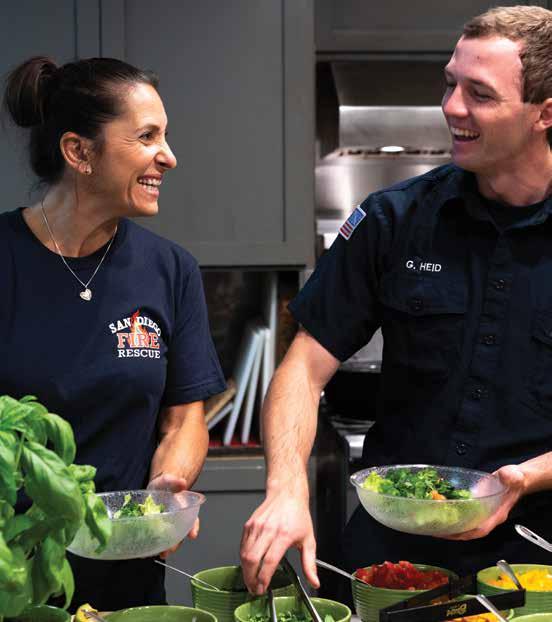
Miuccio was quick to greet me with a firm handshake upon a morning visit, leading me through the apparatus bay as I ogled all of the engines and equipment reminiscent of my boyhood fantasies.
“I’ve been here for 72 hours,” she says as she shows off the
collection of cash. “Each person on the division puts 10 dol lars down, or more, for lunch and dinner.”
“Taxpayers don’t pay for your food on the job?” I ask.
“Yeah, that’s a big misconception. Sometimes it gets awkward at stores. But we all put into the pot every day, and every division is responsible for their own food. We also have a condo fund for condiments, a coffee fund, and a kombucha fund. We meet here at 8am and decide what to cook. Break fast is [on the] individual.”
Miuccio explains that though the daily kitty contribution was less that day, people are stepping up for healthier options. She’s extremely health-conscious: After successfully treating her son’s au tism with dietary interventions, she appreciates the power of food.
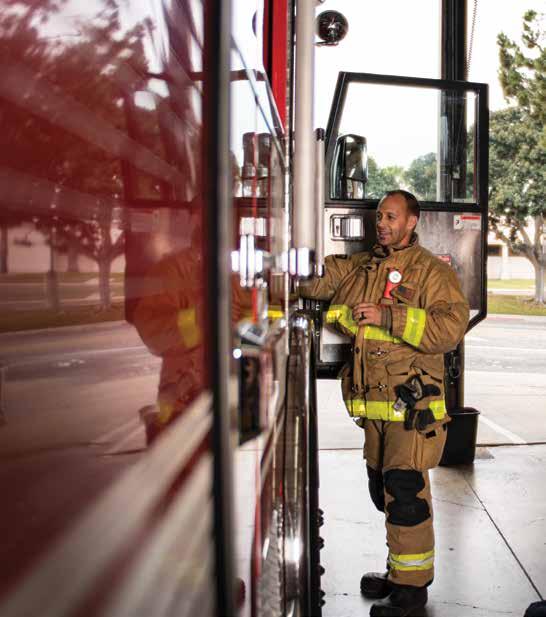
dorms where firefighters can rest during chaotic schedules.
Off to the right, a small nook displays several pictures of fire fighters along with folded flags and memorabilia. It’s a memorial. One man looked very young to be there.
“Who is that?” I ask her.
“That’s Ryan Lee.”
“Did he die in a fire?”
“Diabetes.”
I follow her to the kitchen, a large communal space that seems to be the heart of the station, as she introduces me to a culture that she and other colleagues are trying to change.
Miuccio heads to finish making her breakfast of eggs, veg etables, and locally raised pork at the cooktop as Captain Ed Jones prepares an acai bowl. Norgord sits across from the island at one of two large tables with a list, a pen, and a few 10-dollar bills scattered in front of him. Miuccio and some of the crew join us to eat.
“That’s the kitty,” Norgord gestures to the shopping list and
She explains that of the leading causes of death amongst firefighters, all can be better prevented through diet—not eliminated, but at least prevented.
Norgord points to Jones, “He brings all his stuff from home. Organic.”
A group of younger firefighters sit at the next table eating bagels with various toppings and discussing the merits of corn versus flour tortillas while chugging Monster Energy drinks. “I mean, this everything bagel is healthy, right? It’s got everything!” jokes Jeff Lowe, a younger member of the firehouse crew.
The divide between food interests felt like a chasm.
The makeup of a firehouse is complicated. A single house with one engine has four firefighters; a double (like this one) runs an engine and truck with eight firefighters, plus two or three para medics. Work shifts are organized by an intricate schedule of 24 hours on, 24 off, with a rest period after four shifts—and manda tory overtime is a regular reality. Firefighters work an average of more than 112 hours every two weeks.
Contrary to popular belief, firefighters must pay for and prepare their meals daily. They’re also restricted to shopping for groceries from markets in their service area. Food deserts or afflu ent neighborhoods can add stress to their conservative budgets, and habits in the kitchen have placed comfort and ease over a more consciously healthy diet.
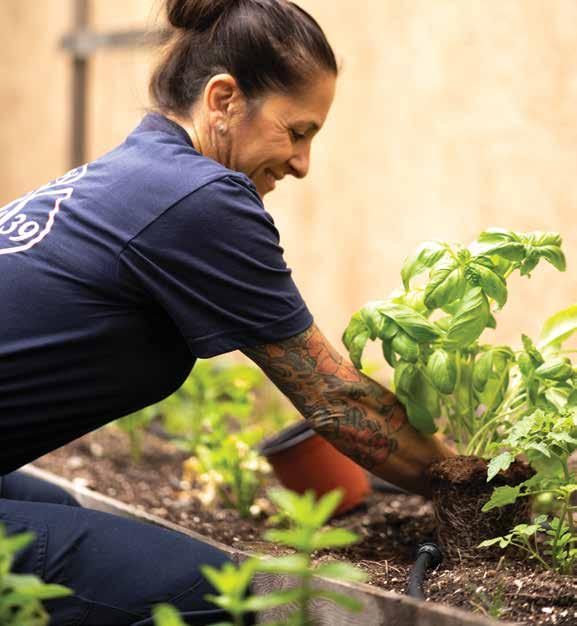
A will-working (substitute) firefighter tends to buy snacks like chocolate muffins or ice cream. If firefighters miss a meal because of an emergency call, they have to grab one on the road, often fast, often greasy. If they get a call while cooking, then there goes the meal and in comes the convenience food.
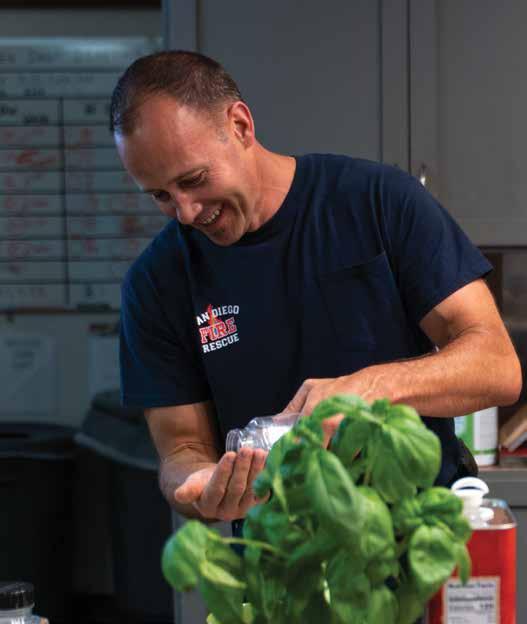
“Cancer and heart disease are modifiable. We can’t control the fires. We can control diet,” Miuccio says.
by progress.”
Breakfast is followed by a grocery run with Captain Norgord, engineer Charles Osterhout, and firefighters Santiago Reccia and Lowe, the foursome responsible for meals that day. Ironically, it’s Lowe, the firefighter with the comment about bagels, that sug gests spinach salad with Osterhout’s famous chipotle chicken for lunch. Dinner plans include smoked burgers, but with a lot of veggies and lettuce wraps.
The firefighters run all over Costco looking for ingredients, de bating prices and quality. People thank them for their service, but I also witness the challenge of trying to balance cost over health with such a strict budget—especially in public.
“When people think their dollars are paying for this, it some
Neighboring
Norgord elaborates: “Each year, approximately 100 firefight ers die in the line of duty. Of that, 50% die of sudden cardiac arrest. More from cancer. Of that 50%, one in five are under the age of 42. We have some bad habits and traditions— sweets, starches, etc.—in the fire service that we are trying to change. Firefighter and all emergency responders’ bodies are under attack from the stresses of the job, like lack of sleep and hazardous gasses. It’s just not enough to be well in the mo ment. We are teaching that for a better outcome in this career and of this life, we need to be fit and eat healthy to be less susceptible to sickness.”
Spearheading this effort, Miuccio and Norgord will speak at the annual Firehouse World Conference about the effects of diet and health outcomes within the firefighting community. Miuccio spoke earlier this year about the topic in Los Angeles. They have a simple plan: Better diet equals better health. But Norgord illustrates how hard it is to change a firmly cemented culture with a joke: “It’s like 100 years of tradition unimpeded
times gets a little nerve-wracking. I remember one time when we were talking about getting organic cheese versus the cheapest option, someone told us we better get the cheapest because it was their tax dollars paying for it. It became very awkward,” explains one of the firefighters.
They shop in groups in case there is a call for service while they’re is in the store. On this day, the call comes in while the crew are in the checkout line. They rush to their truck, tucking food into any space that would take it only to find out the call was canceled.
When contrasting this workday scenario with corporate wellness practices where gourmet coffee bars and organic boxed lunch deliveries are included in the work perks, one thing is for certain: Our first responders need more support. The San Diego Fire Department has a health and safety division that educates firefighters about physical and behavioral wellness and diseases like cancer. Firefighters train endless hours to save lives— shouldn’t they save their own?
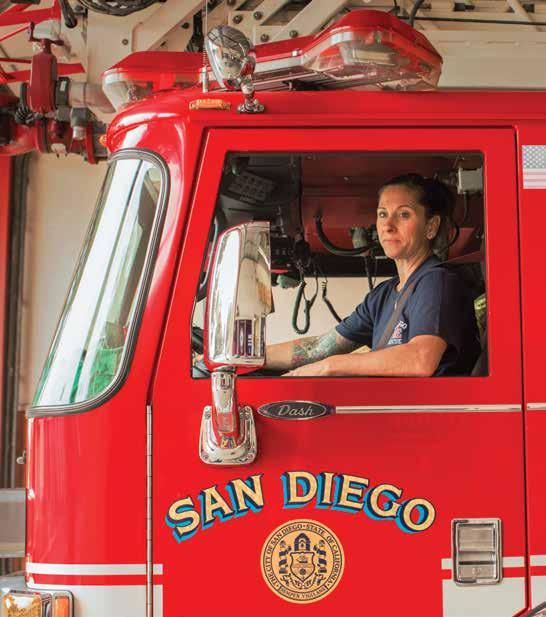
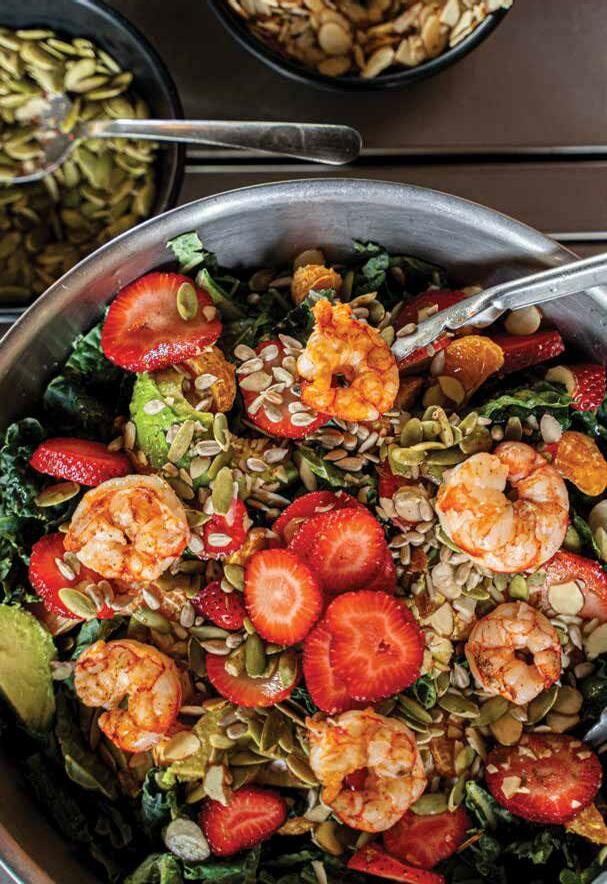 BY JERI MIUCCIO (INSPIRED BY ADRIANA PEREZ, SDFD)
BY JERI MIUCCIO (INSPIRED BY ADRIANA PEREZ, SDFD)
SERVES 6
1 bunch kale
3 tablespoons extra-virgin olive oil, divided
1 teaspoon apple cider vinegar
Salt and pepper to taste
1 tablespoon raw honey
1 pound wild-caught shrimp, peeled and deveined
3 large lemons, juiced
1 pound fresh strawberries, stems removed and sliced
5 mandarin oranges, peeled and sliced
2 large avocados, pitted and diced
¼ cup raw sunflower seeds ¼ cup raw slivered almonds ¼ cup raw pepitas
4 skewers
Prepare kale ahead of time by cleaning and chopping it, then place it in a large bowl with 2 tablespoons olive oil, and the vinegar, salt, pepper, and honey. Massage dressing into kale with hands until well incor porated; refrigerate for a few hours to marinate.
Make the shrimp: Brush shrimp with remaining olive oil, salt, and pepper; skewer and grill over medium heat until cooked through, about 3 to 5 minutes each side.
To serve, place shrimp on kale salad and top with remaining ingredients.
SERVES 4
4 large sweet potatoes
1 pound sliced mushrooms of choice
2 tablespoons extra-virgin olive oil
1 13.5-ounce can coconut milk ½ cup peanut butter
1 red bell pepper, diced 1 bunch cilantro, chopped 1 bunch scallions, sliced 1 bunch basil, chopped ¼ cup slivered almonds Salt and pepper to taste Red pepper flakes to taste
Bake whole sweet potatoes in a 350° oven until soft, about 45 minutes.
In the meantime, saute mush rooms in olive oil over medium heat for 5 minutes; add coco nut milk and peanut butter and stir until smooth and warm.
To serve, cut open sweet pota toes and top with mushroom mixture. Garnish with desired amounts bell pepper, cilantro, scallions, basil, almonds, salt, pepper, and red pepper flakes.
SERVES 8
2 pounds ground elk (or ground meat of choice)
1 medium yellow onion, diced
1 14.5-ounce can diced tomatoes
1 7-ounce can diced green chiles
1 teaspoon granulated garlic
1 teaspoon garlic salt
1 teaspoon ground cumin
1 teaspoon smoked paprika
1 teaspoon chipotle chile pepper
½ teaspoon black pepper
SALAD MIX
1 bunch kale
1 bunch spinach
1 head green leaf lettuce
1 large red bell pepper, diced
1 large yellow bell pepper, diced
1 large orange bell pepper, diced
1 bunch cilantro, roughly chopped
1 medium red onion, diced
1 cup shredded cheese, Mexican blend preferred
1 cup diced Roma or vineripened tomatoes
1 2.25-ounce can sliced black olives, drained
2 avocados, diced
Plantain chips
¼ cup extra-virgin olive oil or avocado oil
2 tablespoons apple cider vinegar or red wine vinegar
1 tablespoon Italian seasoning
1 teaspoon chipotle Tabasco
1 teaspoon smoked paprika
1 teaspoon sea salt
1 teaspoon pepper
Make the taco meat: Heat a large skillet over medium heat and add ground elk. Cook meat, stirring occasionally, to medium temp, about 5 to 7 minutes. Add yellow onion and continue cooking until meat is about 90% done and onions are translucent. Stir in remain ing ingredients and cook until meat is well done, about 3 to 5 minutes.
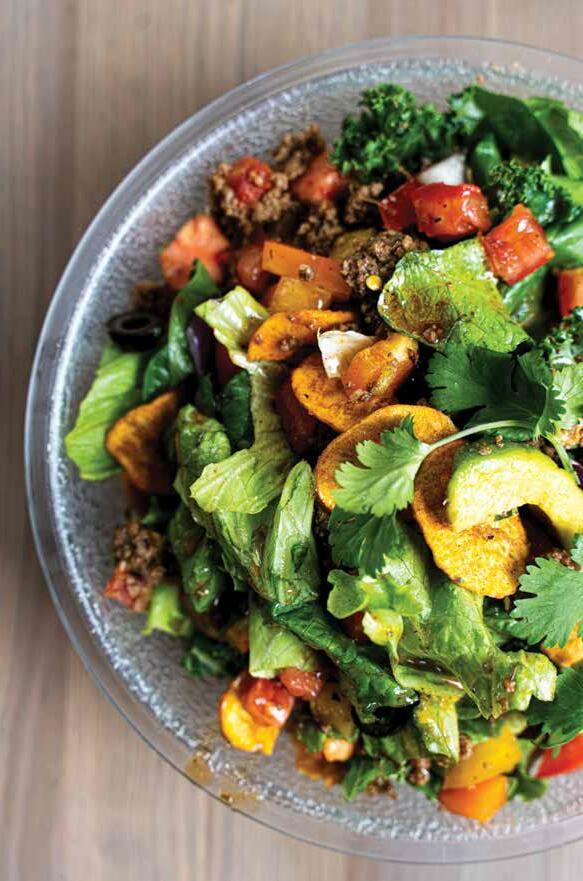
Prep the salad fixins: Wash and dry kale, spinach, and lettuce; roughly chop and place in a large bowl. Place bell peppers, cilantro, red onion, cheese, tomatoes, black olives, avo cados, and plantain chips in separate serving bowls.
Make the dressing: Whisk all ingredients together in a small bowl.
Serve to the crew buffet style and enjoy.
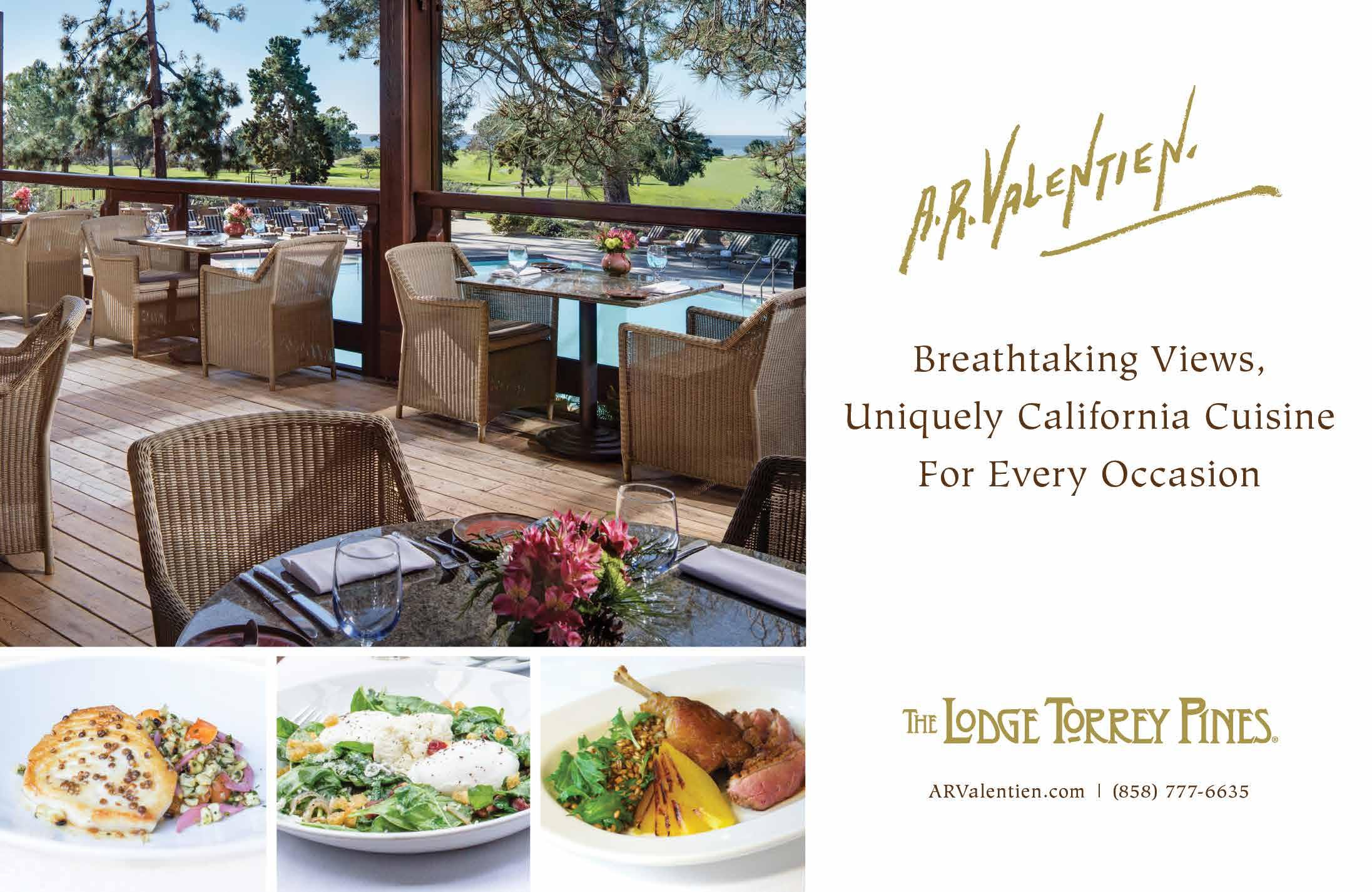






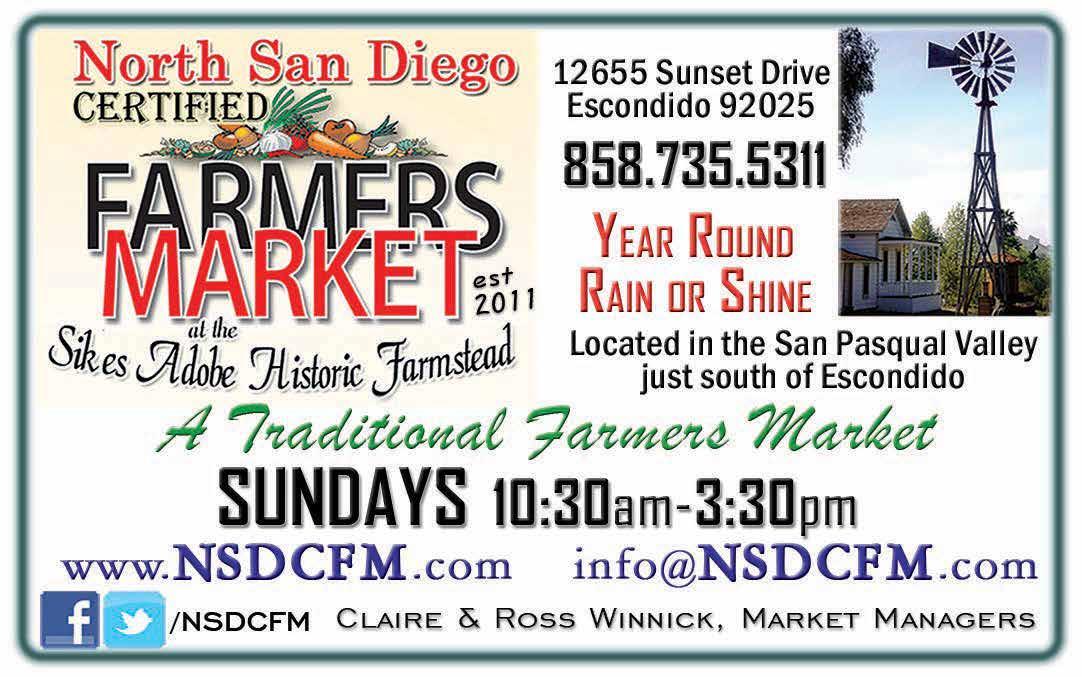





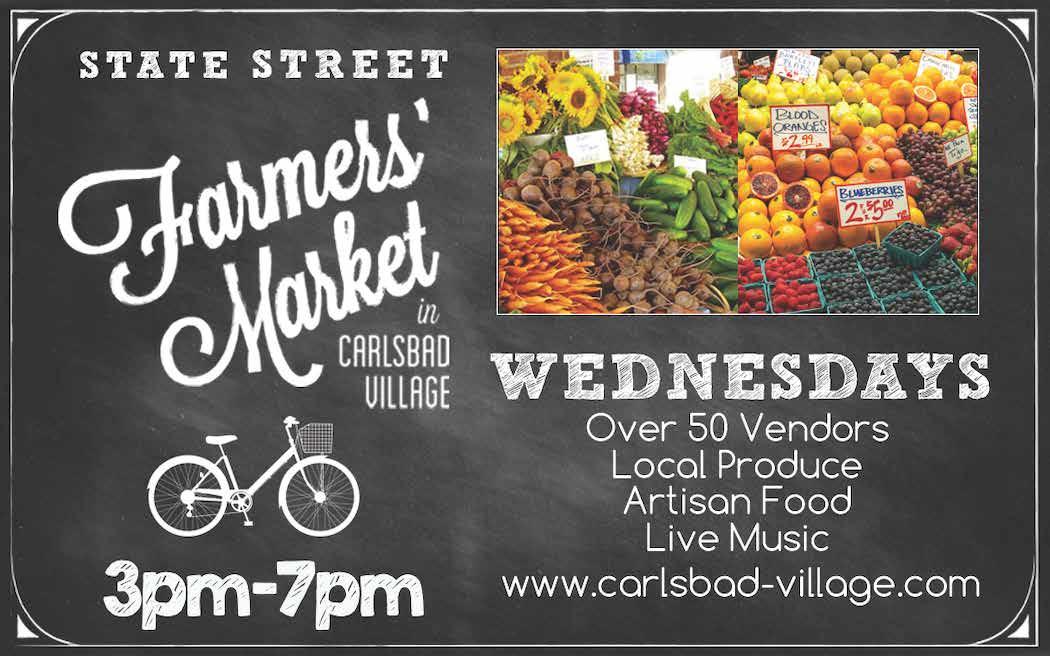

Stroll into Valley Farm Market in Spring Valley on any given day and you’re likely to catch a glimpse of two local barbecue bosses animatedly chatting between coolers of craft beer and piles of fresh produce. The market’s owner, Derek Marso, and Andy Harris, owner and pitmaster of Grand Ole BBQ, often find themselves losing track of time talking shop, sports, hunting, fishing, or just life in general.
“Andy lives not even a quarter mile away from my grocery store,” says Marso. “He comes into the shop and…a lot of times it won’t even be a meeting. I’ll just see him and we’ll literally sit in my aisle and talk for a long time.”
When Harris first told Marso he was moving close to his store, he remembers saying, “I’ll probably see you every day.” He laughs. “That’s pretty much been the case! We always have a lot to talk to each other about.”
The pair are part of the small but extremely tight-knit barbecue scene in San Diego. Both hail from East County (Marso from Jamul, Harris from La Mesa) and share a common goal: to continue to grow and uplift the burgeoning local barbecue industry as colleagues, not competitors.
Harris admits he had to adjust his thinking to mesh with Marso’s mindset. “I’m kind of a competitive guy,” he says. But when he was preparing to open the
Two pals gabbing away in front of the butcher counter, as per usual.
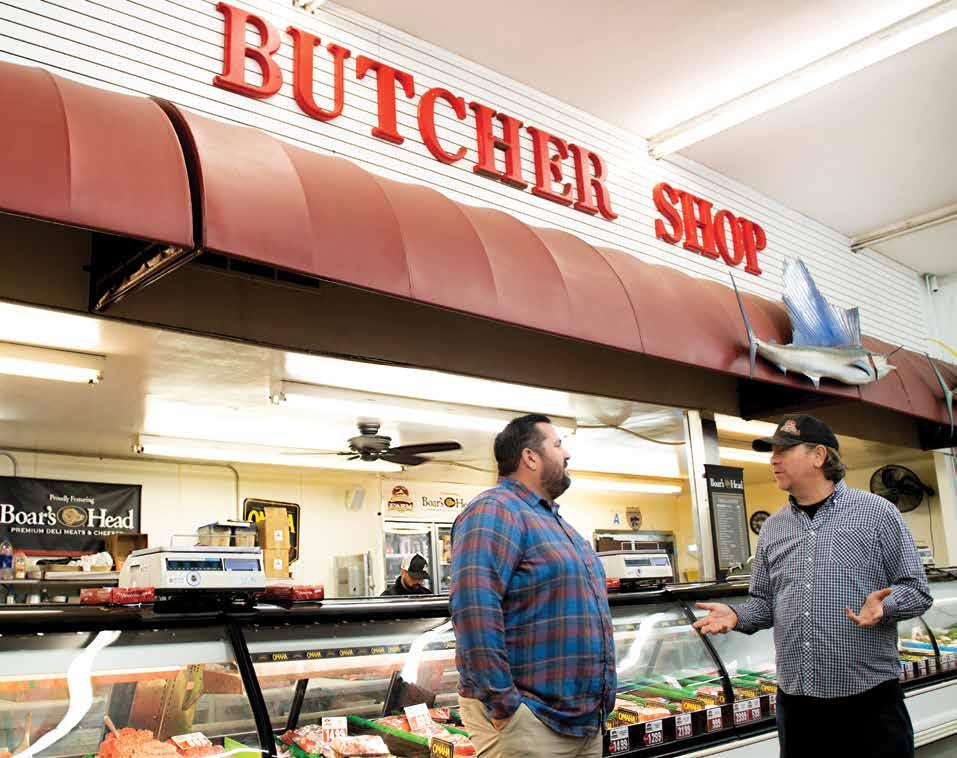
first Grand Ole BBQ y Asado in North Park back in 2015, he quickly realized that the rest of the players were on a dif ferent page.
“I saw how the guys who’d been doing it longer than me were so cool to each other. I thought, that’s a way better situ ation. That’s how I should handle myself. Looking up to those guys, I learned from them,” explains Harris.
For Marso, who founded and co-hosted the Behind the Smoke podcast as well as the annual Spring Valley Tailgate and BBQ Festival with Shawn Walchef of Cali Comfort BBQ, bringing Harris into the fold was an easy sell. “In the barbecue in dustry, we live off the saying, ‘A rising tide lifts all ships.’ When you find like-minded people like Andy, who wants to support the growth of barbecue the right way, you just gravitate towards them.” He goes on to point out that Harris’s authenticity and honesty are other traits that appeal to him on a personal level.
“One of the best things about him is that he’s a no-B.S. guy. You know where he stands; he’s not going to fluff it at all. He’s very secure in who he is…it’s very similar to my personality. It’s just so easy for us to communicate because we know what we are getting with each other.”
The duo’s friendship extends into their businesses as well. Marso’s meat market provides all of the sausages to Harris’s two locations: Hundreds of them are handmade three times a week for the team at Grand Ole to finish and smoke on-site. It’s a partnership that Marso hopes to continue for years to come.
“I would imagine it’ll be something that we do until we’re old and gray,” says Marso. With Valley Farm Market set to open a second location in La Jolla this summer and Grand Ole BBQ’s recent renovation of their North Park venue, this delicious joint effort seems likely to keep cooking for a long, long time.
When you live in a virtual paradise, it’s hard to imagine go ing anywhere else for a summer family vacation. This is why we at Edible San Diego are so fond of exploring the magical destinations nearest to our hearts and often less than an hour away. Of all our favorite spots, there is perhaps nothing dreamier than packing up the little ones and settling in for a quick getaway to one of the nation’s most historic and well-preserved hotels in the Jewel by the Sea.
An eye-catching woman sits in the center of a garden ter race, her image captured in a hand-painted tile mosaic portrait with the look of someone who’s spent a lifetime taking in the pristine view. Contradictory to common belief, it’s the color of her dress that lends to La Valencia Hotel’s nickname, the Pink Lady, not the soft coral hue of the stucco façade against the luscious backdrop of succulents, florals, palm trees, and an ocean-blue sky.
Being here brought back quixotic childhood moments spent languishing in a swarm of mosquitoes by a lake in central Min nesota, reading about La Jolla and always pronouncing the hard J until I moved to San Diego and found out I’d been saying it wrong. Nonetheless, the short and dreamy vacay was far better than I could have imagined.
Our room was at the top of the west wing, a 110-year-old building originally established in 1909 as the Hotel Cabrillo and later acquired and added on to the property in 1956. The vintage room size almost felt minimalist, but also practical and luxurious with contemporary features and comforts. Always a sucker for nostalgia, the black-and-white photograph of Greg ory Peck (only one of the many famous past guests) perched on the wall above the bed reminded me that we don’t make places like this anymore.
After checking in, exploring hallways, taking a trepidatious journey down an ancient stairwell, and ogling over architectural details, we sauntered into The Med. La V’s main dining des tination with pictorial views of the coastline was serving their
Saturday afternoon tea with all the frills. The event was a first for the youngest member of our family getaway, but the tower of petite sandwiches, macarons, and cakes was enough to lure his attention away from a handheld gaming device.
A mere few minutes’ walk away, the Pacific called to us for an early evening stroll. We enjoyed the breeze on top of the bluffs at Ellen Browning Scripps Park, where we watched the crowds of sea lions sunbathing at La Jolla Cove. It was the perfect place to lose track of time.
We found ourselves back at The Med making the most of the view from the terrace for dinner. A kids meal cleverly presented in a bento box complete with cheeseburger, fries, salad, and fresh fruit kept the little one happy. The adults feasted on chef Alex Emery’s seasonal fare of veggies and hummus, a cheese and charcuterie platter, stuffed leek with pea velouté, tiger prawns with chorizo, and a succulent New Zealand rack of lamb with polenta, Brussels sprouts, creme fraiche, and a Cara Cara orange purée.
Temperatures dipped a little as the sun settled into the hori zon. Attentive servers and bartenders made sure we felt right at home by wrapping us in blankets, turning on the heat lamps, and sharing photos and stories of the many gorgeous sunsets they’ve witnessed working there over the years.
For dessert, we opted to head across the street to Bobboi for waffle cones filled with stracciatella (vanilla chocolate chip) and vanilla hibiscus gelato before nestling down early for a cozy sleep.
In the morning, we made our way back to the shore in time for tide pool exploration at Shell Beach, followed by a hearty brunch of shrimp chilaquiles back at the hotel. As for the rest of our staycation, though we had plans to shop and eat our way through the many attractive stores and restaurants in La Jolla Village (like I would have undoubtedly done before I had a kid), they lost out to good old-fashioned family time and a lazy day by the pool.
La Valencia Hotel 1132 Prospect St.

» lavalencia.com

Ellen Browning Scripps Park
1100 Coast Blvd.

» sandiego.gov
Bobboi Natural Gelato 8008 Girard Ave. Suite 150
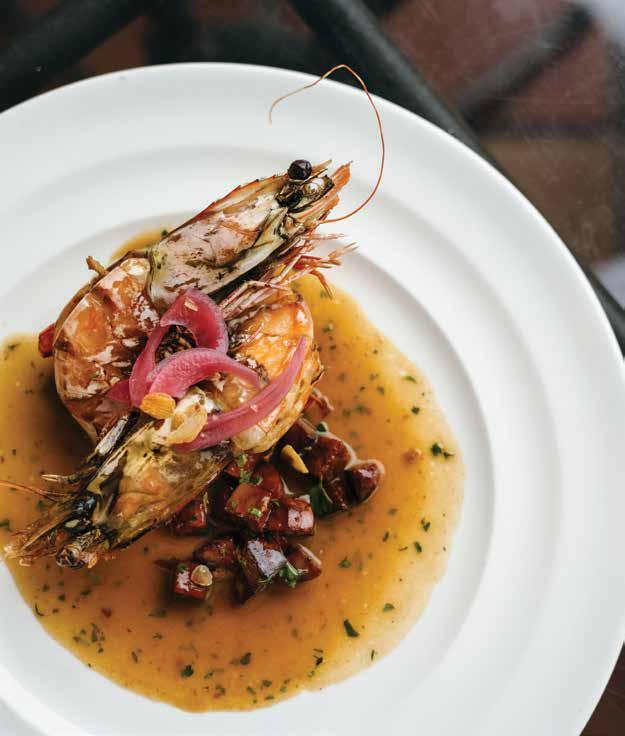
» bobboi.com
Whisknladle 1044 Wall St.
» whisknladle.com

Parakeet Cafe 927 Silverado St.
» parakeetcafe.com
Piazza 1909 7731 Fay Ave.
» piazza1909.com
The Cave Store
1325 Coast Blvd.
» cavestore.com
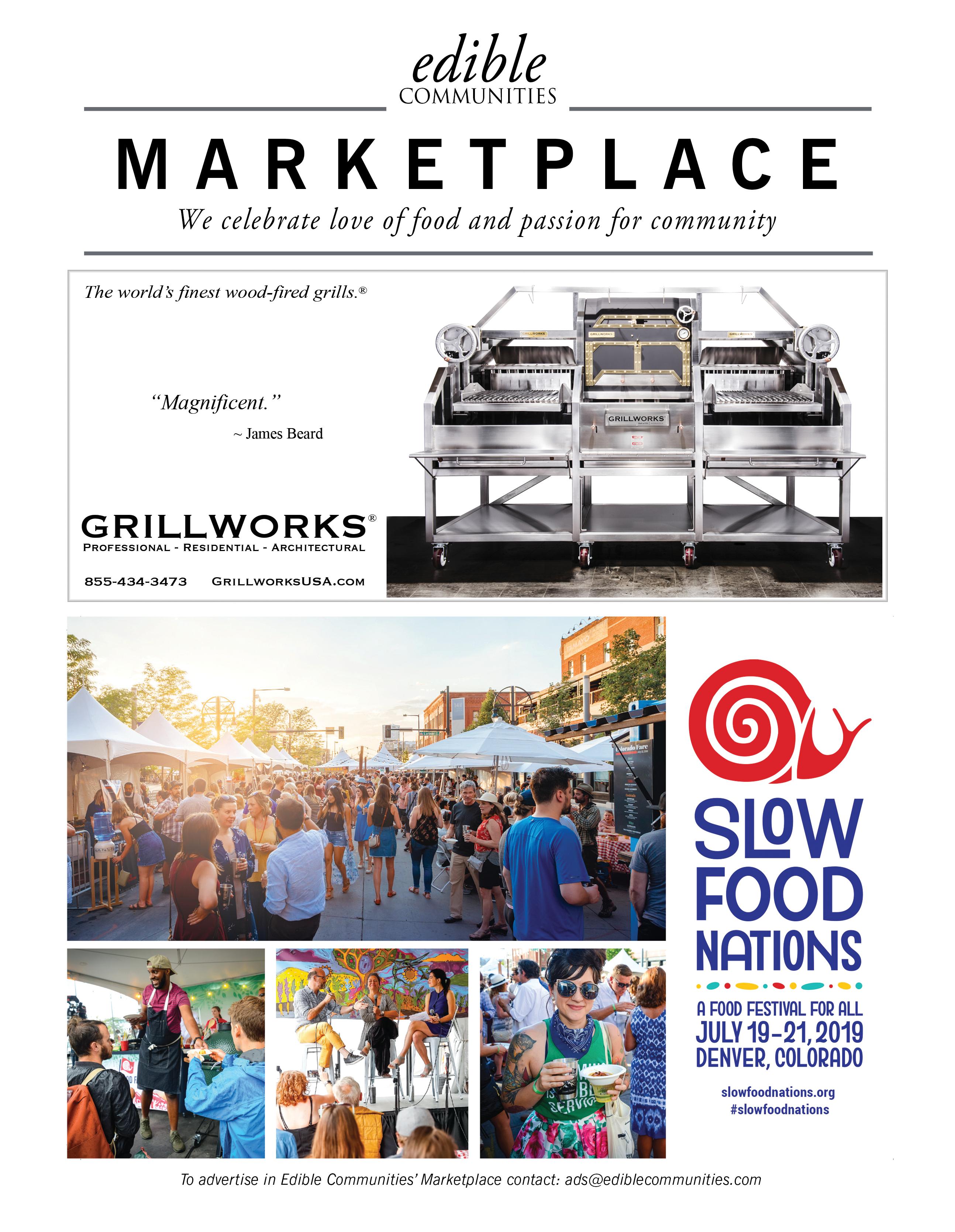 BY KAY LEDGER
BY KAY LEDGER
Easy-to-grow chile peppers enliven summer feasts. Jim Duffy grows more than 400 vari eties at Refining Fire Chiles in Lakeside, including the fruity peachadew. Duffy recom mends growing peppers in amended soil and full sun near the coast, and in the shade inland. In the kitchen, make shishito pepper tempura or quick pickled fresh chiles, or try charring Korean green peppers for a zesty aioli. Find the seasonal heat in farmers’ market treats like spicy tofu sauce from Just Young Fine Foods, local kimchi from Gogi Blvd., and peppery raspberry jam from Jackie’s Jams, which turns out to be divine in a thumbprint cookie.
Scoville heat units (SHU) measure a pepper’s heat. Jalapeños range from 8,000–10,000 SHU, while habaneros start at 100,000. When handling chiles, use gloves and avoid touch ing eyes and skin. To soothe a burning mouth, drink dairy products such as milk, or chase the heat with bread. For burning skin, flush with warm water then soak in a dairy product.
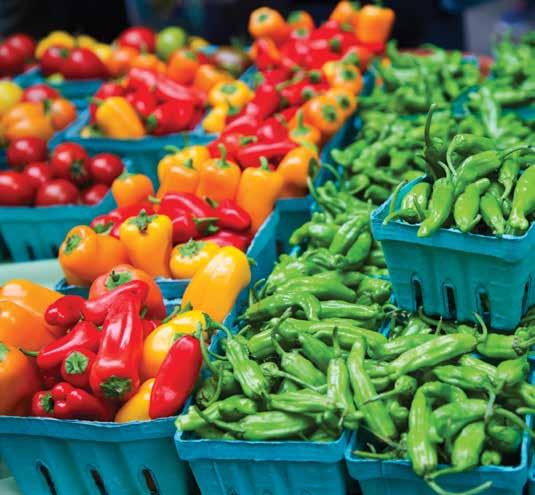 BY BETH DEMMON
BY BETH DEMMON
Learn about the wild world of fermentation at a hands-on pickle workshop and beer pairing at Second Chance Beer Company on July 7. » fermentersclub.com
Taste free-flowing Herradura tequila, Valle de Guadalupe wines, and Baja-inspired bites at the tequila edition of Estancia La Jolla Hotel’s By the Barrel series on July 12.
» meritagecollection.com
Top reggae artists (including headliner Third World) bring positive vibrations to the Reggae Vegan Fest at Liberty Station NTC Park on July 21.
» reggaeveganfest.com
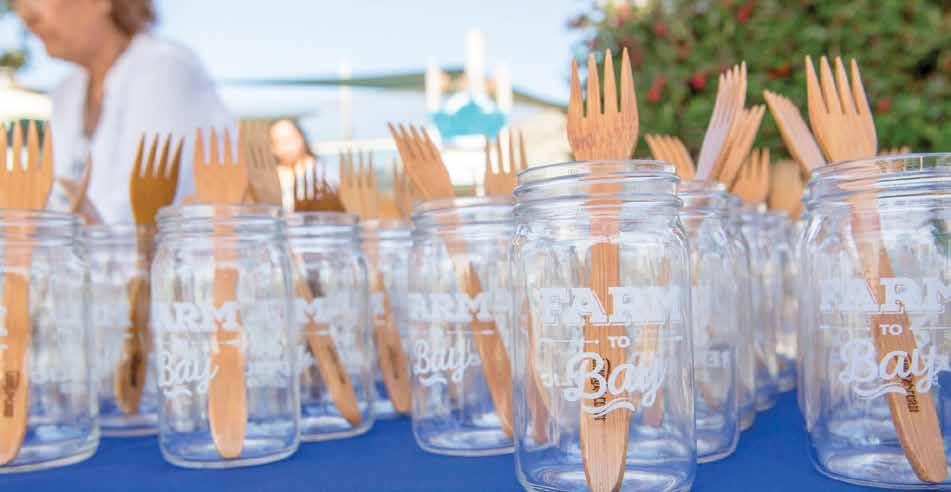
Help the Living Coast Discov ery Center preserve local wildlife at the 10th annual Farm to Bay fundraiser on August 3, featuring small plates and beverages from lo cal chefs and craft producers.
» thelivingcoast.org
Find more events online at ediblesandiego.com/event-list.
Purchase locally raised meat on August 3 at the Ramona Junior Fair Livestock Auction and support aspiring farmers in 4-H, FFA, and Grange Clubs.
» ramonajuniorfair.com
Wild Willow Farm and Education Center hosts a two-day workshop on how to select and care for fruit trees on August 10 and 11.
» wildwillowfarm.org
Enjoy a vinyasa yoga class, farm tour, and al fresco farm-to-table brunch at Wild Willow Farm on August 31.
» epicureansandiego.com
Pairing pizza and beer has been an iconic casual indulgence in the past, but now barbecue and beer aspire to clinch the title, and the partnership in Oceanside at That Boy Good and Northern Pine Brewing is a strong contender for the championship round. The dual businesses share a cozy space just a few blocks from the beach, where That Boy Good’s Southerninspired barbeque dishes like hickorysmoked pulled pork and collard greens provide a solid base for Northern Pine’s balanced brews. Calorie-conscious consumers aren’t likely to find any thing light at either establishment, but diving into a cup of smoked tri-tip chili with a crisp kolsch or fresh IPA to wash it down is a pretty phenomenal way to spend an afternoon. Both small businesses are family owned and oper ated, so diners and drinkers can rest assured their dollars are going straight into the local economy.
That Boy Good and Northern Pine Brewing 326 N Horne St., Oceanside
» thatboygoodbbq.com
» northernpinebrewing.com
These restaurants are either locally owned, passionate about local sourcing, or both. Enjoy a delicious meal and make sure to tell them that Edible San Diego sent you!
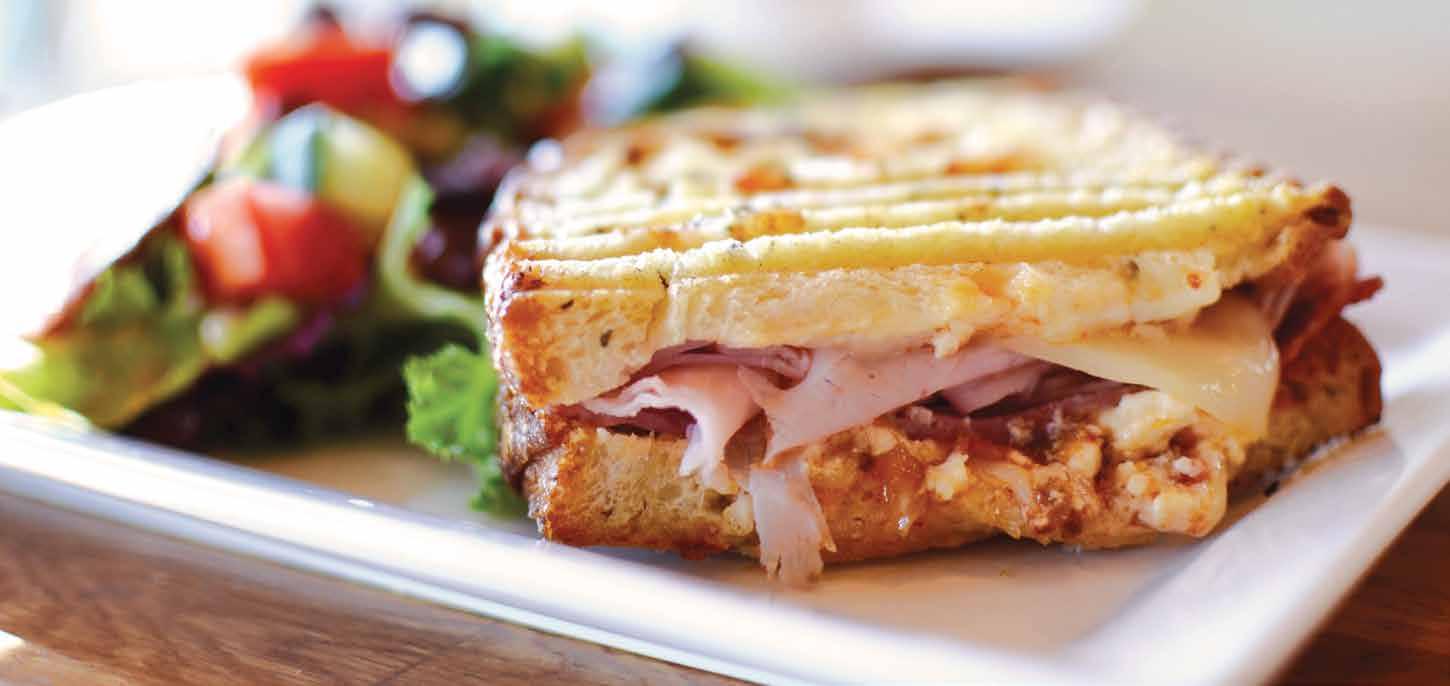
A.R. VALENTIEN

11480 North Torrey Pines Rd., La Jolla 858-453-4420 • lodgetorreypines.com/ar-valentien
The Torrey Pines Lodge’s signature restaurant, A.R. Valentien, highlights regional San Diego cuisine served in an elegant, timbered indooroutdoor dining room overlooking the 18th hole of Torrey Pines Golf Course. Executive chef Jeff Jackson sources only the best local provisions, and the menu changes frequently based on seasonal fare available. The restaurant takes its name from a talented early-20th-century California artist whose works are exhibited throughout the restaurant.
MISSION BEACH

ESCOGELATO
122 South Kalmia St., Escondido 760-745-6500 • escogelato.com
Located in the heart of Escondido, EscoGelato is made fresh daily using the highest quality ingre dients and fresh fruit sourced from local farmers. The result is a luscious, super-creamy gelato that’s full of flavor. You will taste the difference. In ad dition to the main event, enjoy a nice selection of paninis, soups, salads, coffee, and tea.
JUICE WAVE

3733 Mission Blvd., Mission Beach 858-488-0800 • juicewavesd.com What began as San Diego’s first organic juice truck now has two happy homes in Miramar and Mission Beach. Still, their commitment rings true: “Refresh and nourish the soul by using the best quality farm-fresh ingredients from local farms that reflect the radiant growing season in Southern Califor nia.” Check out their creatively named cleanses, like Lettuce Love, Turnip The Beet, and Kalefornia.
POINT LOMA SOLARE
2820 Roosevelt Rd., San Diego 619-270-9670 • solarelounge.com
Solare is an authentic Italian restaurant with a special focus on southern Italy and Sicily featuring a menu made with fresh ingredients selected daily. Blending modern and traditional tastes, the results are light and healthy dishes brimming with natural flavors. Complement your meal with one of 2,000 bottles of wine from the cellar or 30 wines by the glass. Solare is committed to serving the cuisine of today, created with all the love and attention to detail from generations past.
BIVOUAC CIDERWORKS

OCEANA COASTAL KITCHEN

3999 Mission Blvd., San Diego 858-539-8635 • catamaranresort.com/dining-entertainment/ oceana-san-diego-restaurant
Oceana Coastal Kitchen features chef-driven California cui sine and a modern, ocean-inspired design. Oceana offers bayfront dining at an iconic Pacific Beach hideaway. Executive chef Steven Riemer’s playful interpretations of classic dishes highlight the purity and flavors of California local produce and a commitment to sustainable ingredients. A cold bar with sushi options, small bites, and main dishes includes the fresh est seafood available from the coast of Baja and the Pacific.
3986 30th St., San Diego 619-725-0844 • bivouaccider.com
As a center for experimentation and camaraderie, Bivouac Ciderworks is a welcome home for active, crea tive, and outdoorsy cider and food enthusiasts alike. Their goal is to inspire curiosity and foster a passion for what craft cider brings to the table. The outdoor-inspired tasting room, right in the heart of North Park, features a full menu of food options. Don’t miss the Impossible Burger, award-winning tuna poke, and vegan jackfruit sliders.
Escondido—Welk Resort √† 8860 Lawrence Welk Dr. 3–7pm, year-round 760-651-3630
Coronado √
1st St. & B Ave., Ferry Landing 2:30–6pm 760-741-3763
Escondido √* 262 East Grand Ave. 2:30–7pm (2:30–6pm Oct to May) 760-480-4101
Mira Mesa √* 10510 Reagan Rd. 2:30–7pm (3–6pm fall-winter) 858-272-7054
Otay Ranch—Chula Vista √ 2015 Birch Rd. and Eastlake Blvd. 4–8pm 619-279-0032
Pacific Beach Tuesday √† Bayard & Garnet 2–7pm 619-233-3901
People’s Produce Night Market √ 5010 Market St. 5–8pm 619-813-9148
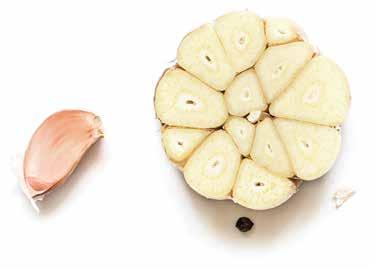

San Marcos NEW! √ 1035 La Bonita Dr. 3–7pm 858-272-7054
UCSD Town Square √
UCSD Campus, Town Square 10am–2pm, Sept to June 858-534-4248
Vail Headquarters √* 32115 Temecula Pkwy. 9am–1pm 760-728-7343
Little Italy Wednesday √*† 501 W. Date St. 9am–1pm 619-233-5009
Ocean Beach √ 4900 block of Newport Ave. 4–8pm 619-279-0032
Santee *† Carlton Hills Blvd. & Mast Blvd. 3–7pm (2:30–6:30pm winter) 619-449-8427
State Street in Carlsbad Village √ State St. & Carlsbad Village Dr. 3–7pm (3–6pm fall-winter) 858-272-7054
Temecula—Promenade √* 40820 Winchester Rd. by Macy’s 9am–1pm 760-728-7343
Lemon Grove √* 2885 Lemon Grove Ave. 3–7pm 619-813-9148
Linda Vista √*† 6939 Linda Vista Rd. 3–7pm (2–6pm winter) 760-504-4363
North Park Thursday √*† 2900 North Park Way 3–7:30pm 619-550-7180
Oceanside Morning √* Pier View Way & Coast Hwy. 101 9am–1pm 760-791-3241
Mission Valley √*† Civita Park 7960 Civita Blvd. 3–7pm, Apr to Jan 760-504-4363
Bernardo Winery √ 13330 Paseo del Verano Norte 9am–1pm 760-500-1709
City Heights √*†! Wightman St. btwn Fairmount & 43rd St. 9am–1pm 760-504-4363
Del Mar √ 1050 Camino Del Mar 1–4pm 858-465-0013
Kearny Mesa 8725 Ariva Ct. 9:30am–1:30pm 858-272-7054
Rancho Bernardo 16535 Via Esprillo 11am–1:30pm 619-279-0032
SDSU
Campanile Walkway btwn Hepner Hall & Love Library 10am–3pm, Sept to June www.clube3.org
Valley Center 28246 Lilac Rd. 3–7pm (2–6pm, Nov to Mar) vccountryfarmersmarket@gmail.com
Borrego Springs √
700 Palm Canyon Dr. 7am–noon, Oct to Apr 760-767-5555
Horton Plaza Lunch Market 225 Broadway Circle 11am–2pm 619-795-3363

Imperial Beach √*† 10 Evergreen Ave. 2–7pm, (2–6pm winter) info@imperialbeachfarmersmarket.org
La Mesa Village √*
La Mesa Blvd. btwn Palm & 4th St. 3–7pm, year-round 619-795-3363
Little Italy Mercato √† 600 W. Date St. 8am–2pm 619-233-3901
Pacific Beach √ 4150 Mission Blvd. 8am–noon 760-741-3763
Poway √* 14134 Midland Rd. 8am–1pm 619-249-9395
Rancho Penasquitos YMCA 9400 Fairgrove Ln. 9am–1pm 858-484-8788
Temecula—Old Town √* Sixth & Front St., Old Town 8am–12:30pm 760-728-7343
Vista √*† 325 Melrose Dr. 8am–1pm 760-945-7425
Allied Gardens Sunday 5170 Greenbrier Ave. 10am–2pm
858-568-6291, 619-865-6574
Hillcrest √* 3960 Normal & Lincoln Sts. 9am–2pm 619-237-1632
La Jolla Open Aire √ Girard Ave. & Genter 9am–1:30pm 858-454-1699
Leucadia √* 185 Union St. & Vulcan St. 10am–2pm 858-272-7054
Murrieta √* Village Walk Plaza
I-15, exit west on Calif. Oaks & Kalmia 9am–1pm 760-728-7343
North San Diego / Sikes Adobe √† 12655 Sunset Dr., Escondido 10:30am–3:30pm 858-735-5311
Rancho Santa Fe Del Rayo Village √ 16077 San Dieguito Rd. 9:30am–2pm 619-743-4263
Santa Ysabel √ 21887 Washington St. Noon–4pm 760-782-9202
Solana Beach √ 410 South Cedros Ave. Noon–4pm 858-755-0444
* Market vendors accept WIC (Women, Infants, Children) Farmers’ Market checks.
† Market vendors accept EBT (Electronic Benefit Transfer).
! Market vendors accept WIC Fruit and Vegetable checks.


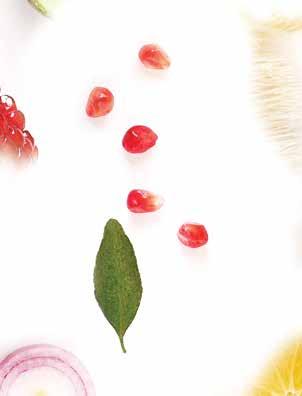
√ Indicates markets certified by the San Diego County Agriculture Commissioner, ensuring that the produce is grown by the seller or another certified farmer in California, and meets all state quality standards. Temecula markets and the Murrieta market are certified by the Riverside County Agricultural Commissioner.
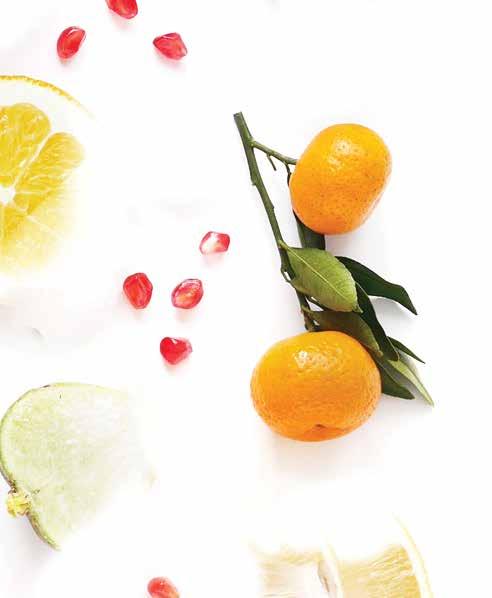
Visit ediblesandiego.com and click on “resources” for more complete information and links to market websites.

Slightly sweet, fizzy, and fragrant, modern gazoz are farmers’ market-inspired sodas that have become a cult favorite in Tel Aviv, Israel. These bubbly beverages were born out of hos pitality traditions of the Middle East, where guests are offered an assortment of refreshments when visiting someone at home. In recent years, commercially produced syrups of the past have been set aside in favor of homemade syrups diluted with carbonated water and infused with aromatic herbs.
Simmering fresh fruit in water and sugar makes the base of this beverage and is a great way to use up peak or past-prime fruits. In a small saucepan over medium-high heat, combine 1 cup of granulated sugar with 1 cup of water and stir until sugar dissolves. Add 1½ cups of seasonal fruits like whole berries or grapes, or wedges of stone fruit, lower heat, and simmer for 20 minutes. Remove from heat, let cool, transfer to an airtight container, and refrigerate for up to 2 weeks.
Carbonated water is the main ingredient in this refreshment
and can change the overall flavor of the drink. Club soda includes added minerals for a slightly salty note, while seltzer offers a pure water taste. A naturally carbonated option like sparkling mineral water is great if you have a favorite brand. Or choose tonic water, which has added minerals, sugar, and qui nine, for a slightly bitter finish.
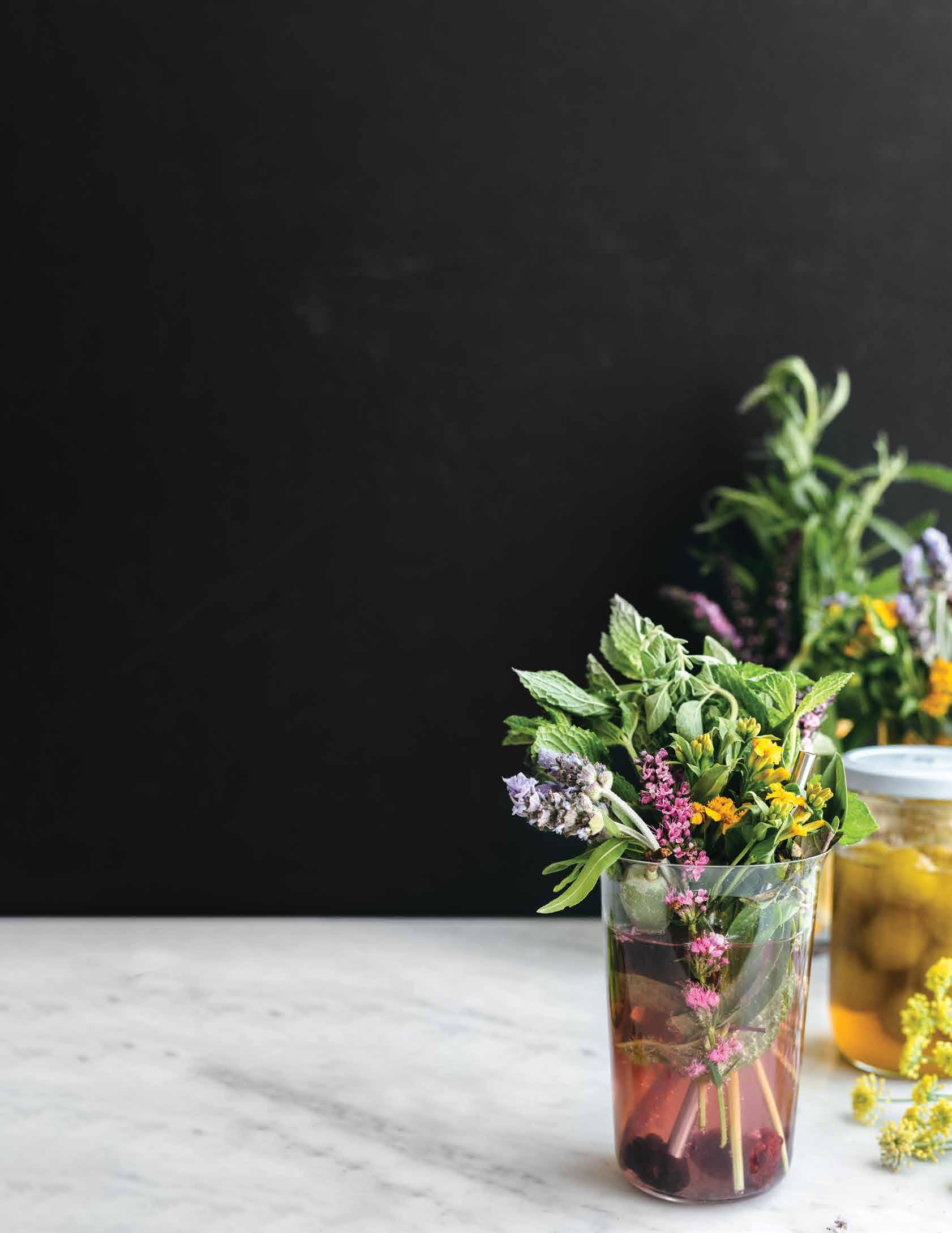
Herbs and their blossoms infuse the soda with heady flavors, deliver a floral aroma with every sip, and create a stunning presentation. Look to the farmers’ market for seasonal inspiration and select bunches of fresh sage, basil, oregano, thyme, and lavender and their blossoms. Pick an assortment of herbs for oneof-a-kind aromatic blends in every cup.
To make the gazoz, pour 3 tablespoons of fruit syrup and spoon a few pieces of the steeped fruit into a tall glass. Top with 8 ounces of carbonated water and tuck in a handful of herbs and blossoms (a shot of gin or vodka works for an adult twist). Finish with a straw and extra garnishes such as green almonds or fresh fruit.
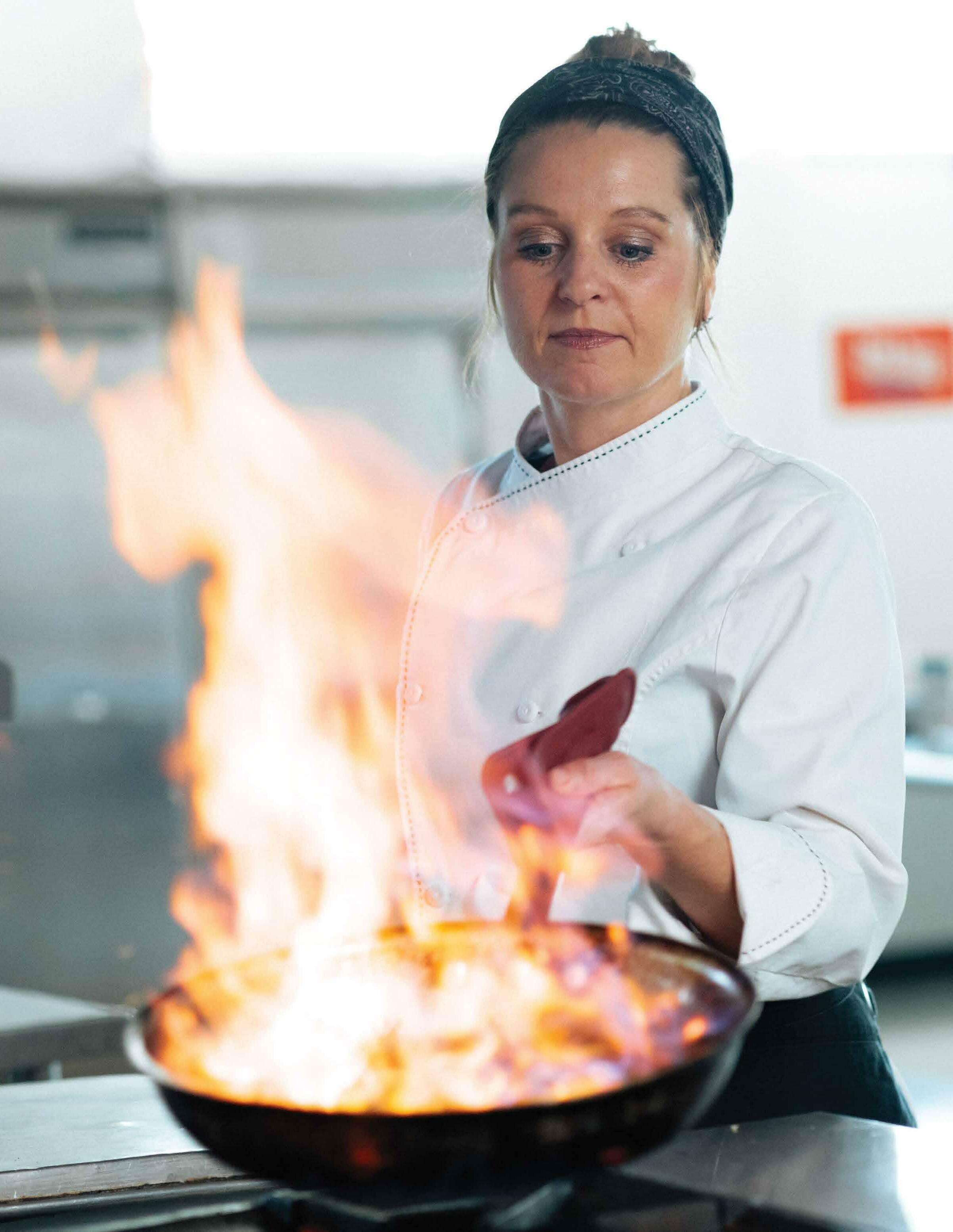
Summer at the Y is all about family, fun and coming together in active and healthy ways. We are more than a gym or a pool, we are a place where people belong and develop meaningful relationships through our numerous programs and activities. From studio classes to swim lessons to camp, you’ll find a safe, positive environment for you and your family to learn, grow and thrive. Join our community and discover your second home this summer.
